More than 5,600 rabbis and guests from 100 countries gathered Sunday night for the gala dinner highlighting the 35th International Conference of Chabad-Lubavitch Emissaries. The celebration was infused with inspiration and joy, but tempered this year in the shadow of the anti-Semitic shooting in Pittsburgh that left 11 dead only eight days before, as well as the 10th anniversary of the murder of Rabbi Gabi and Rivky Holtzberg, directors of Chabad-Lubavitch of Mumbai, in the 2008 terrorist attacks in Mumbai.
Noting that at times like these, the teachings and vision of the Rebbe – Rabbi Menachem M. Schneerson, of righteous memory, are more timely and urgent than ever – Rabbi Yehuda Krinsky, chairman of Merkos Linyonei Chinuch and Machne Israel (the educational and social-services arms of the Chabad-Lubavitch movement) pointed at the work of Chabad emissaries in Pittsburgh and beyond, in the immediate aftermath of the attack.
“As we continue to reel from the unspeakable tragedy that has struck our people,” he said, “it is heartening here tonight to gaze around the room and see – and feel – the palpable strength of Jewish unity that permeates this gathering.
[PHOTO ESSAY: Annual Chabad Kinnus Hashluchim Held In Rockland County; Attended By Nearly 6,000]
“It was you, dear shluchim, who on the Saturday night of the horrific killings, immediately sprung into action, each in your own unique way, and in all corners of the world, turning grief into acts of comfort, support, solace and encouragement.”
A study of Mishnah in memory of those murdered in Pittsburgh was led by Rabbi Yisroel Rosenfeld, executive director of Chabad of Greater Pittsburgh.
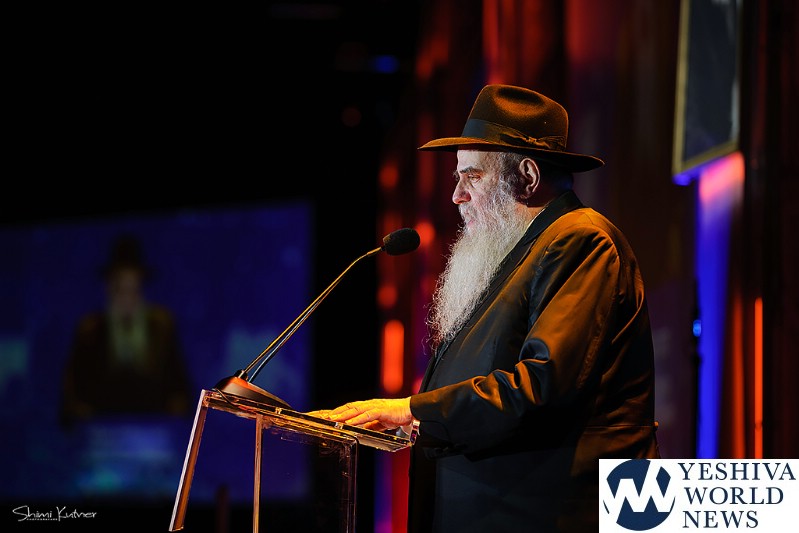
A Cherished Memory
Emceeing in his inimitable style, Rabbi Moshe Kotlarsky, chairman of the Kinus, sounded the conference theme when he spoke of a mission he had once received from the Rebbe in 1984, to travel to the little Caribbean island of Curacao. Not knowing what he was to do there once he landed, he went straight to a synagogue and met a Jew, who, taken aback at seeing a Chassidic Jew on the island, revealed that his son had been expelled from his Christian public school and they didn’t know what to do. Kotlarsky invited the boy to attend Camp Gan Israel in New York, and later the father, Chaim Groisman, sent a letter to the Rebbe thanking him for showing care to a “small Jew in Curaçao.”
“I must, however, take exception to your referring to yourself as ‘a small Jew from Curaçao,’” the Rebbe responded. “ … there is no such thing as ‘a small Jew.’ ”
The attendees, as well as those joining the live webcast on Chabad.org, Facebook and Twitter, also heard from young Hersh Meir Oberlander of Budapest, Hungary, and Mendel Klein of Moscow. They told the story of their grandfather, Rabbi Moshe Lazar, who was born and raised in Austria just before the Hitler’s Anschluss.
On video, Lazar recalled watching Hitler’s motorcade ride through the streets, and, seeing everyone else saluting with their right arms, following suite.
“My sister slapped my shoulder down,” he remembered, “I still feel that slap until today.”
The Lazar family managed to make it to New York, where the boy was sent to the newly-founded Lubavitcher yeshivah, where he and his classmates developed a close relationship with the Rebbe. As he got older, he began working at the Merkos office but felt unfulfilled. He wrote to the Rebbe, who responded that he should offer suggestions. He went on to start Camp Gan Israel, and not long after his wedding, he and his wife were sent to Milan, Italy, to join Rabbi Gershon Mendel and Bassie Garelik in their work in Italy, where they have remained ever since.
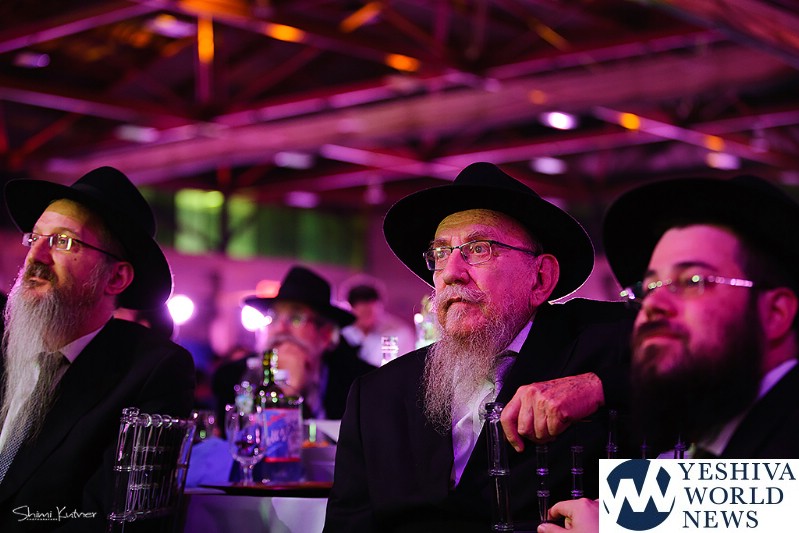
That today his children and grandchildren are emissaries in, among other places, Hungary and Russia, “is a miracle,” said Lazar.
Why the Rebbe Didn’t Fundraise
Russian-Israeli philanthropist and entrepreneur Yitzchak Mirilashvili, the guest keynote speaker, told of how amazed he was that the Rebbe did not fundraise, instead sending his blessings often along with a symbolic bottle of spirits. “Of course he could have found the money to send his Chassidim,” he said. “But that was not the point; that is not what they brought to the table. The value of the Chassidim was their commitment to the cause, and that’s something money can’t buy.”
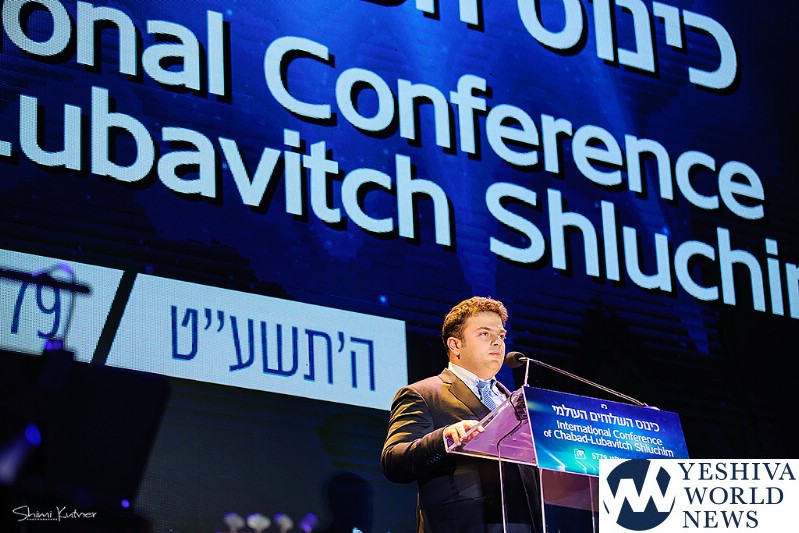
Mirilashvili, who through his Keren Meromim Foundation supports dozens of charitable projects around the world, including the massive Kolel Torah program throughout the former Soviet Union, stated that it was the Rebbe’s leadership, guidance and blessings that ignited the hearts and minds of his followers. “The Rebbe wanted to fuel Jewish hearts and light the flame of shlichut that will never end,” he exclaimed. “How fortunate are we that the Rebbe did not send money. If he would have sent money, the money would run out, and with it, the growth would end.”
The first Kinus took place in 1983 (35 years ago) in a conference room at Lubavitch World Headquarters at 770 Eastern Parkway in the Crown Heights neighborhood of Brooklyn, attended by 65 shluchim. That number was multiplied almost 100 times over this year.
This year’s venue, a massive repurposed gym at Rockland Community College in Suffern, N.Y., saw a staff of 484 spend 10,670 hours setting up the hall and serving its 528 tables.

A Three-Part Story
On the program as well was an emotional three-part story told by Rabbi Motti Flikshtein of Wilmington, Del., Rabbi Aryeh Weinstein of Newtown, Penn., and youth leader Zack Horowitz.
Taking the podium, Flikshtein, program director at Chabad of Wilmington, told the story of a boy named Matt who grew up in a warm but secular Jewish home and at a point started falling in with the wrong crowd. “He… was gravitating towards crime and drugs,” shared Flikshtein. “In desperation, his parents thought that bringing him to the local Chabad might assist them with their wayward son.”
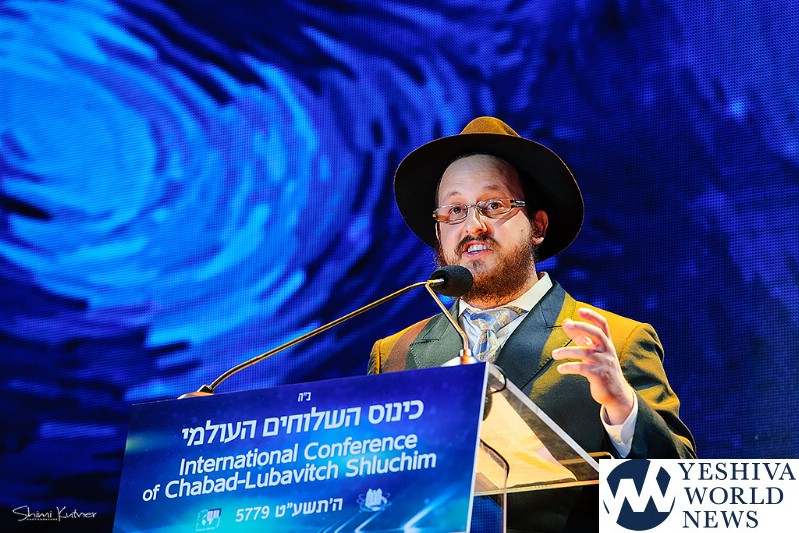
He walked into synagogue on Shabbat morning dressed to shock the rabbi. He didn’t, and instead the rabbi gave him a huge hug, a hug that changed his life.
“Fellow shluchim, dear guests,” said Flikshtein, “Matt was me.”
At that point, Weinstein, an emissary in Bucks County, Penn., and rabbi of the Shul of Newtown, began to speak. He had given Flikshtein that hug years earlier, although, he admitted, it wasn’t exactly his nature. “The Rebbe expects us to reach out with chessed—with love… Matt—Motti—got that hug. For me it was another expression of the Rebbe’s love, but for him it was a life-altering moment.”
Horowitz, a 20-year-old from Wilmington, followed, telling of his experience with his local CTeen (Chabad teen network) chapter, led by Fliksthein and his wife, Rochel, and his new-found connection to Judaism. Today studying full-time in yeshivah, Horowitz thanked both Rabbis Flikshtein and Weinstein.
Uncomplicated, Unwavering Love and Acceptance
The thousands of rabbis and their guests lastly heard from Akiva Klitsner, a Jerusalem-based psychotherapist who was himself troubled as a teenager. At a point it got so bad that professionals advised his parents to send him to the Youth Care Treatment Center, an inpatient, lockdown, residential treatment center, in Draper, Utah. There, alone and far from home, he was surprised when he got a visit from Rabbi Benny Zippel, who had arrived together with his wife, Sharonne, to establish Chabad of Utah in Salt Lake City just five months earlier.
“It’s not just the long drives, the Shabbat dinners and that unforgettable chocolate birthday cake that I am grateful for,” said Klitsner to thunderous applause. “The greatest gift the Zippels gave me, and Shluchim give so many Jewish children in need, is the uncomplicated, unwavering love and acceptance. As with so many others, this love helped me develop the tools and life skills that I needed to find myself and my G‑d given purpose in life.”
As is done every year, Kotlarsky paused to remember those who passed this year. He noted that this week will make 10 years since the murder of Rabbi Gabi and Rivky Holtzberg, co-directors of Chabad of India. “Gabi and Rivky will never be forgotten,” he said. May we find true solace … in the continuity of Chabad of India in the work of Rabbi Yisroel and Chaya Kozlovsky.”
Kotlarsky led the vaunted roll call, assisted by children of emissaries around the world, including Aryeh Leib Lifshitz from Boise, Idaho, and Mendel Banon from Casablanca, Morocco, announcing the emissaries from each and every of the more than 100 countries.
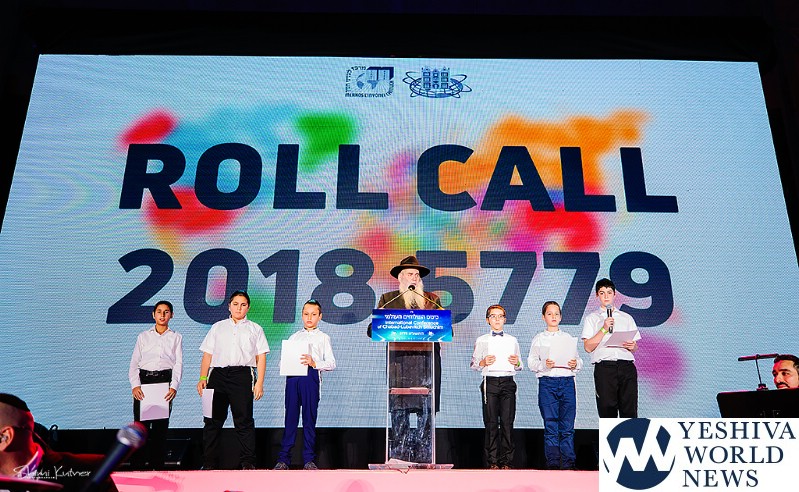
Then they danced. Thousands of rabbis and their supporters, weaving among the tables in a mess of concentric circles spreading as far as the eye can see, jumping with arms over arms, boom cameras and lights overhead.
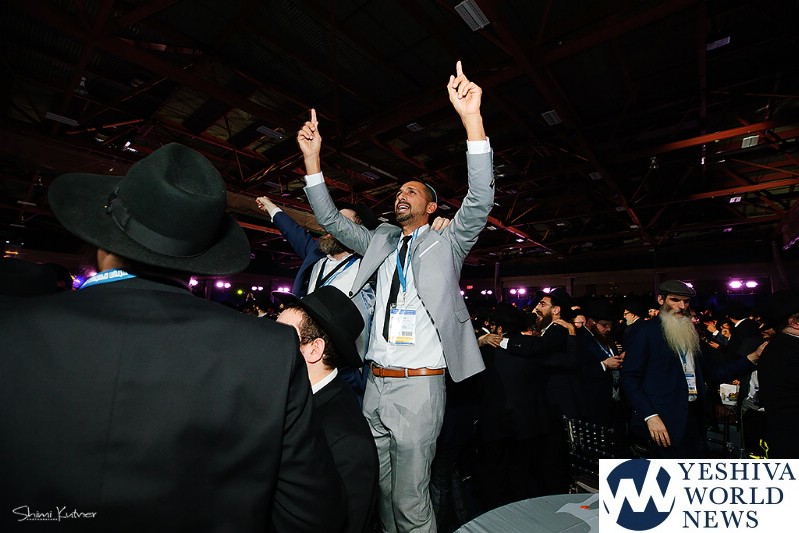
“I can’t tell you how much this means to me,” shouted Kozlovsky over the music. He returns to Mumbai on Monday.
Attached Photos by Shimi Kutner



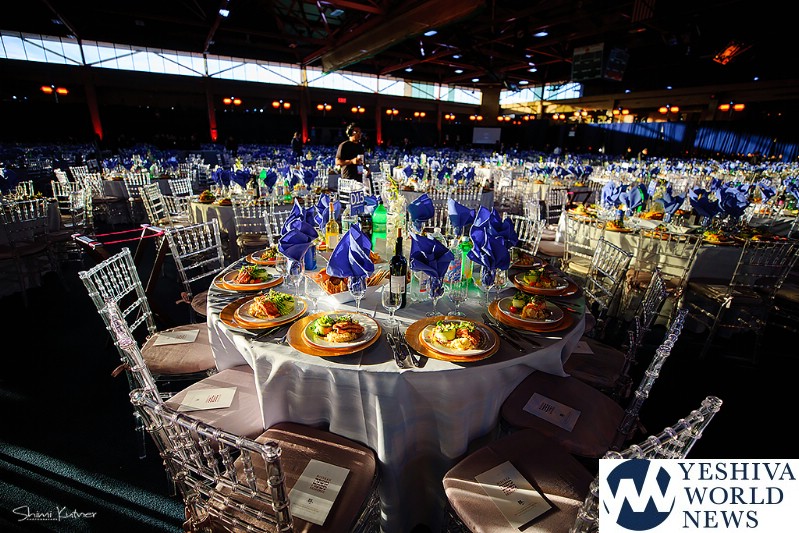

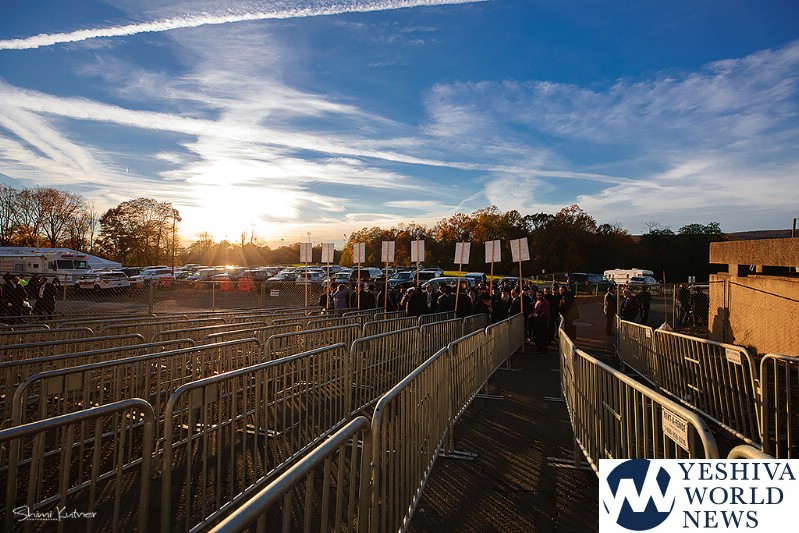
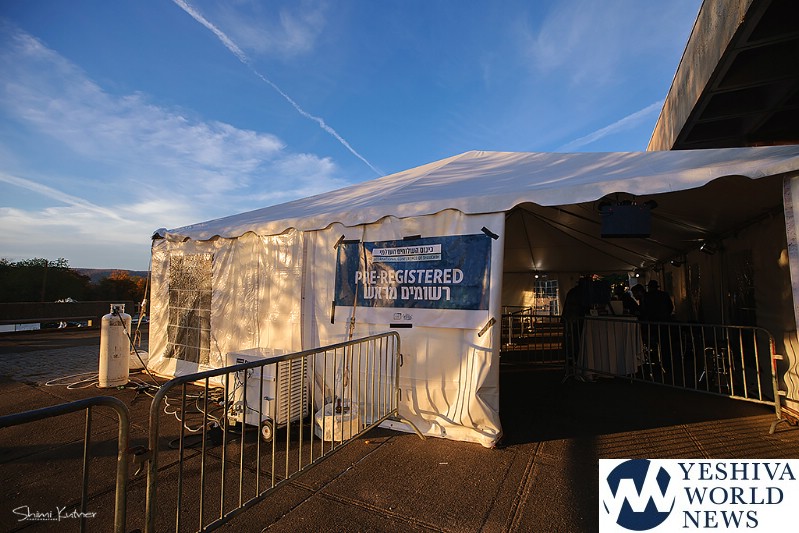
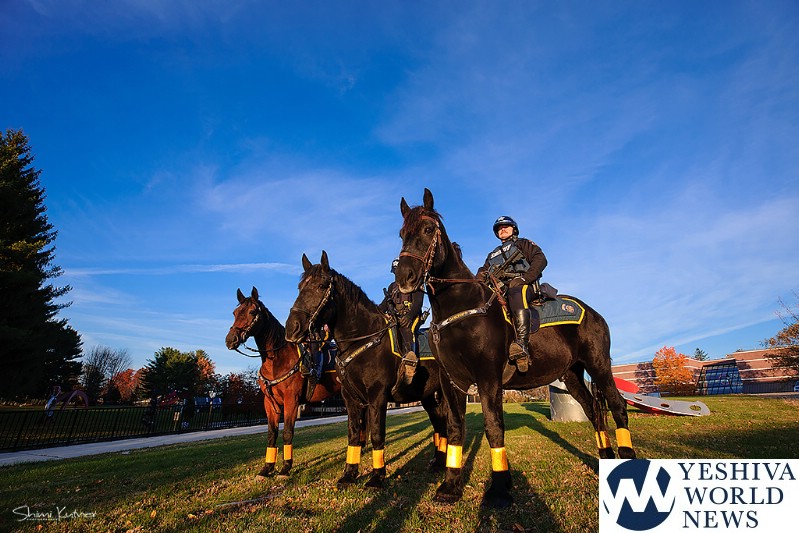
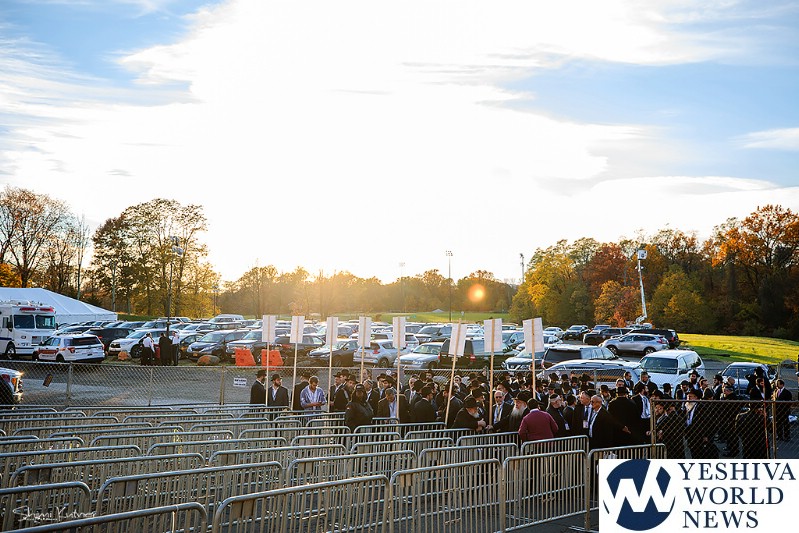
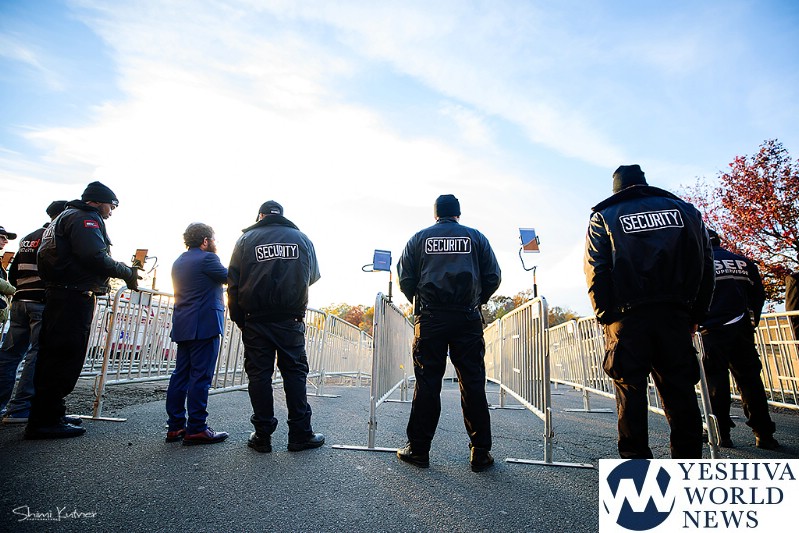
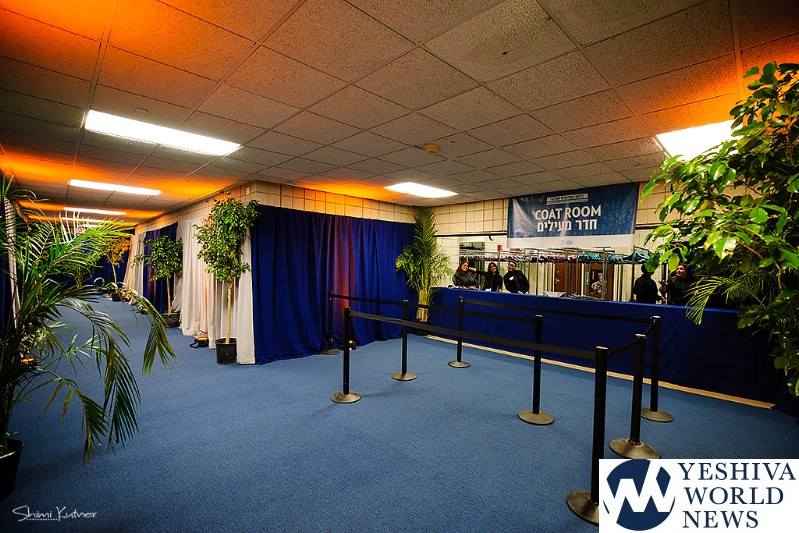
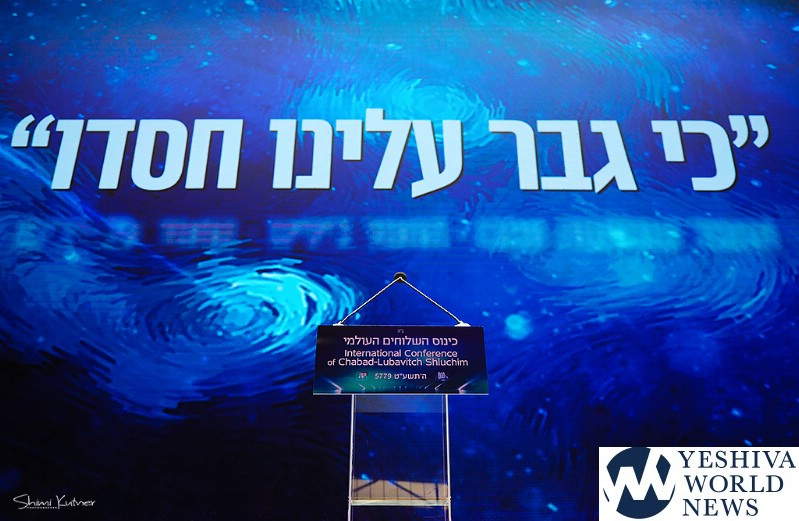
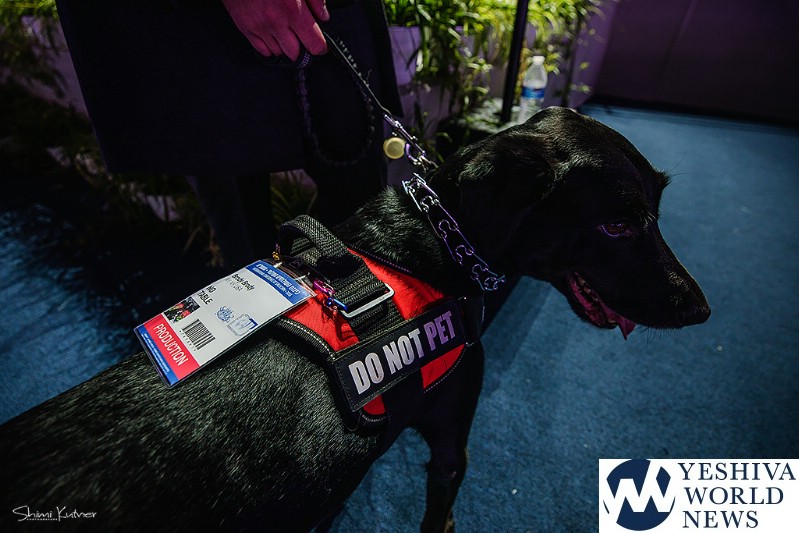
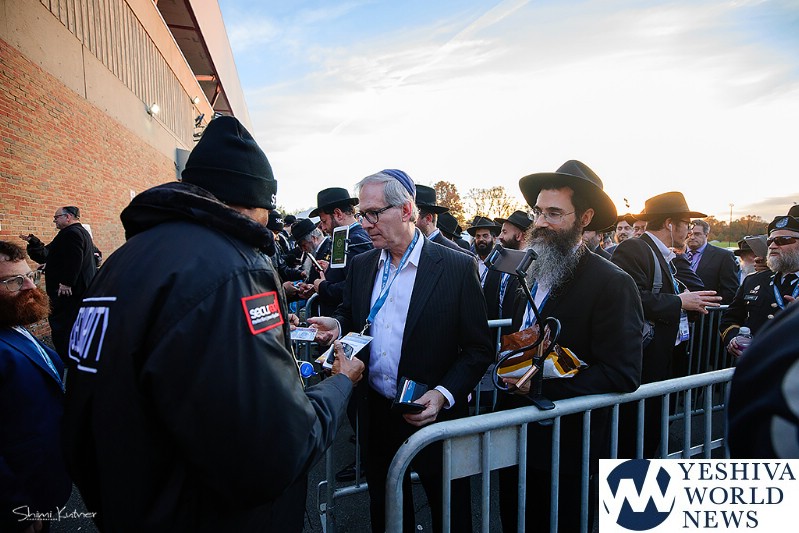
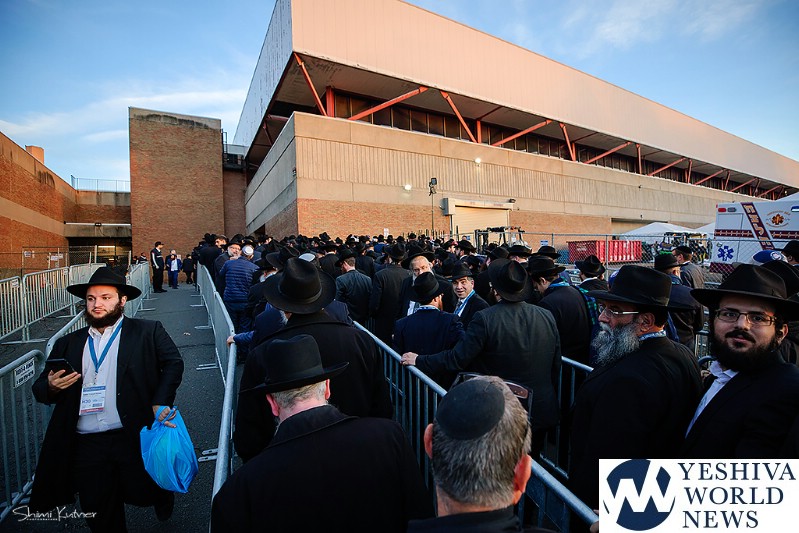
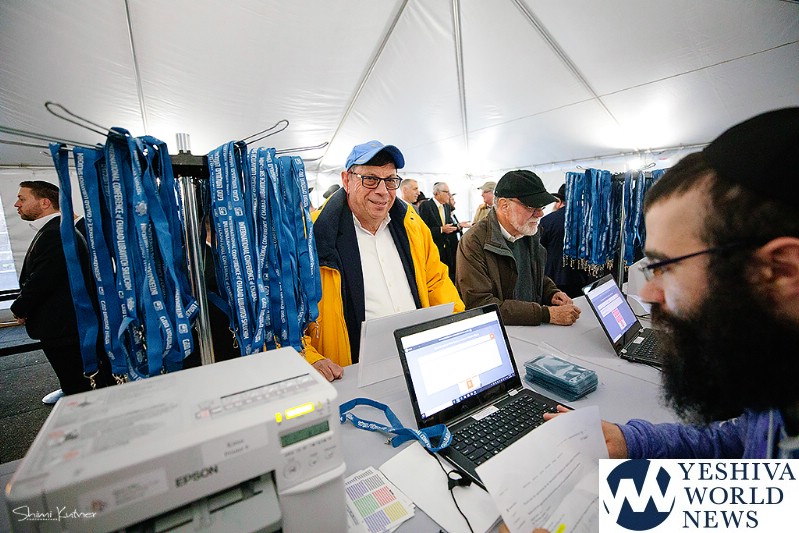
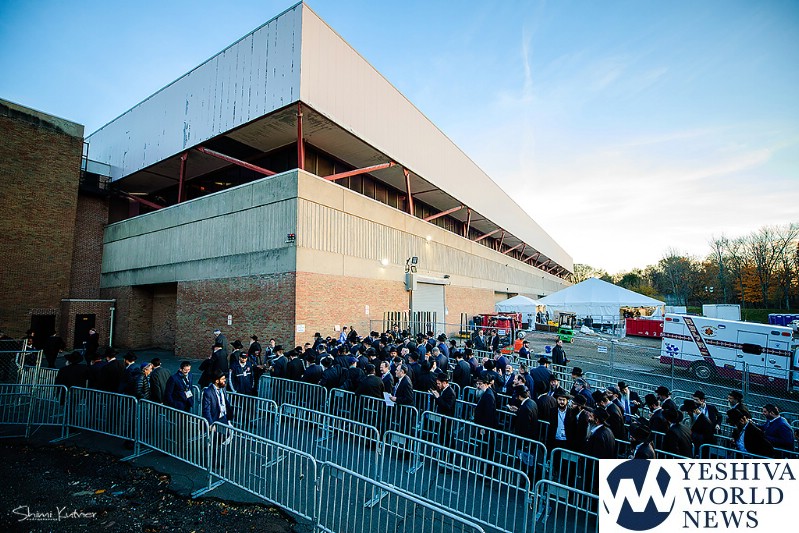
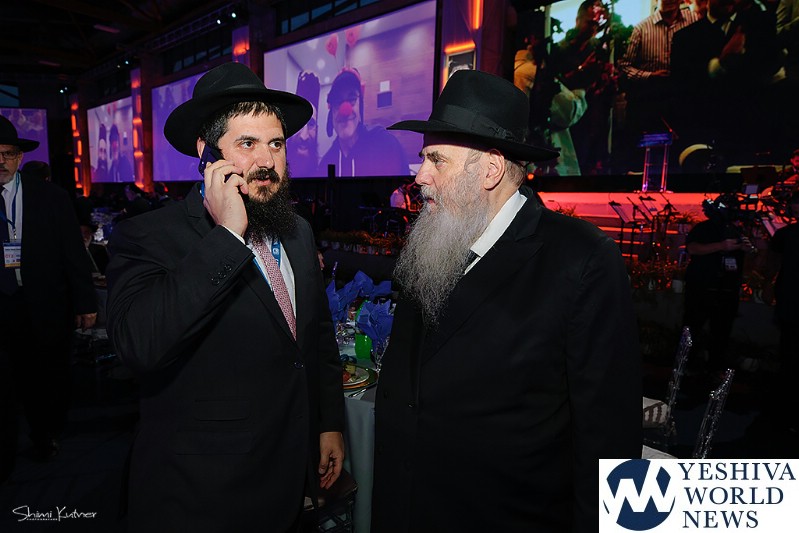
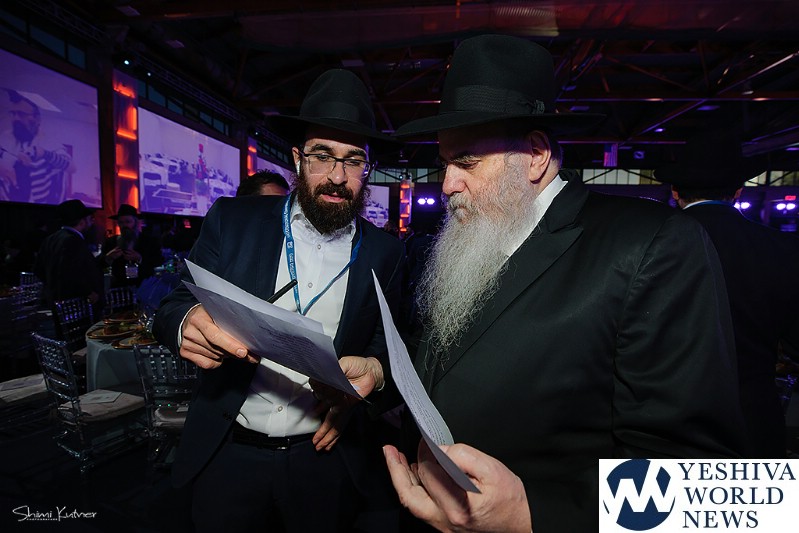
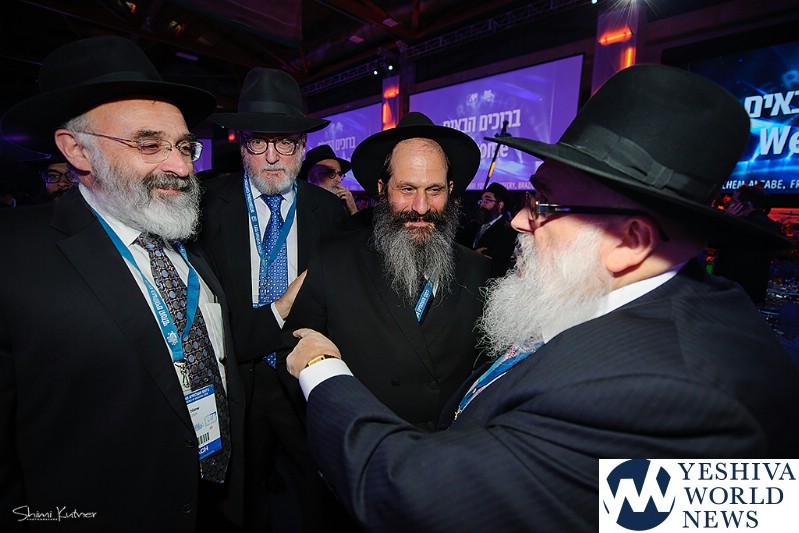
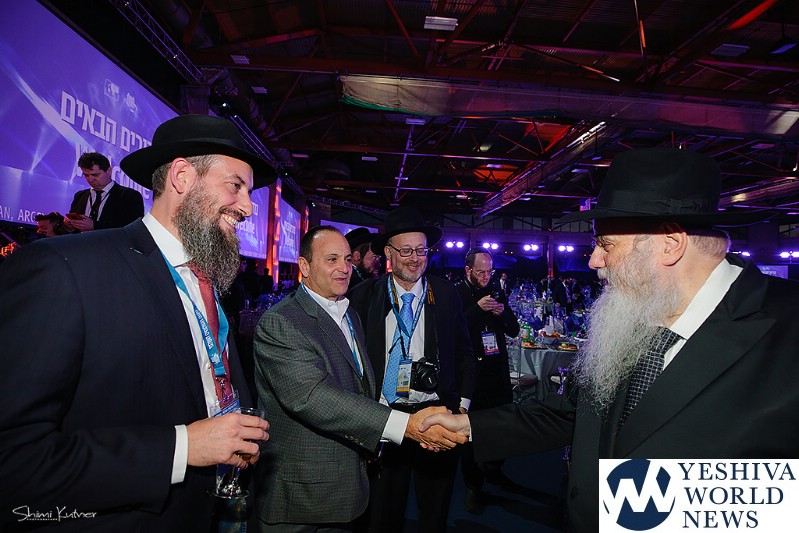
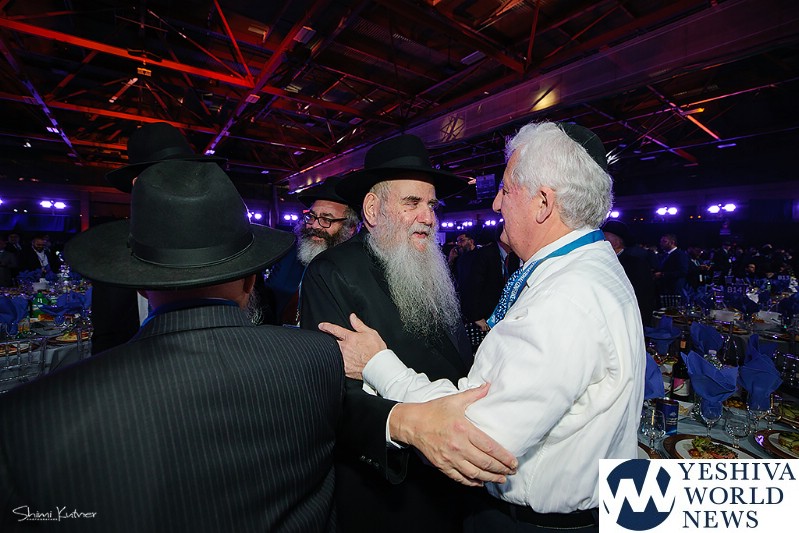
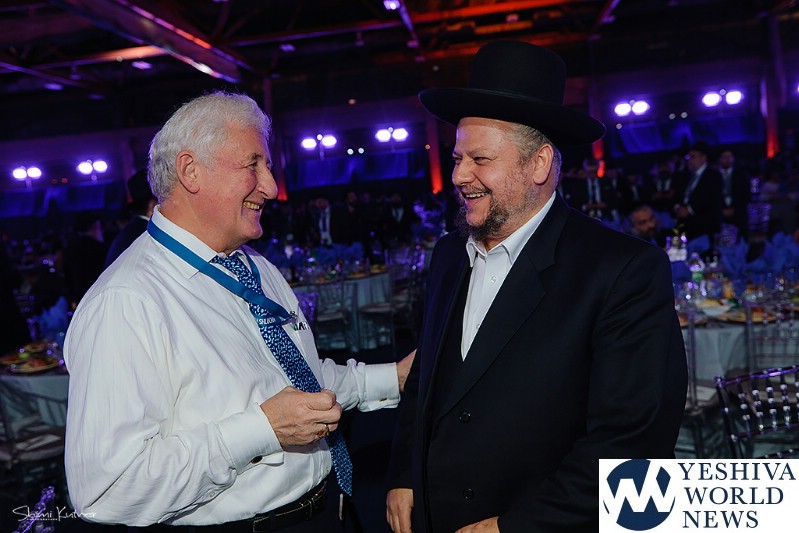
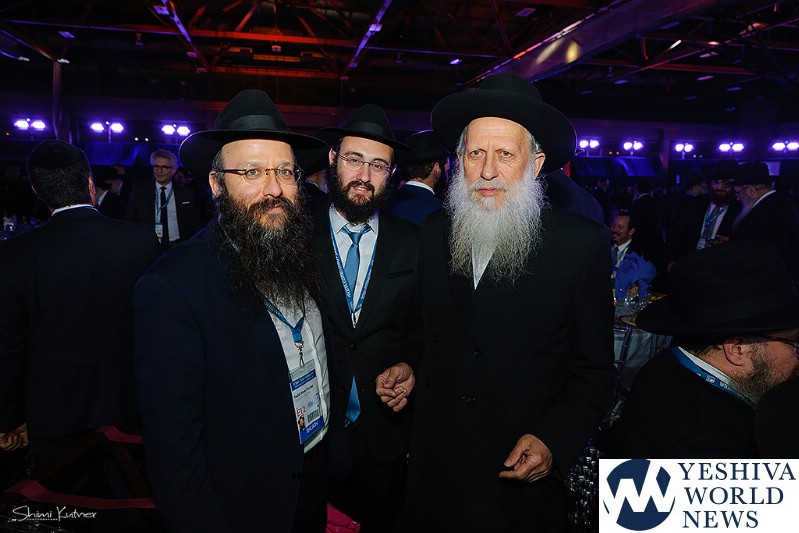
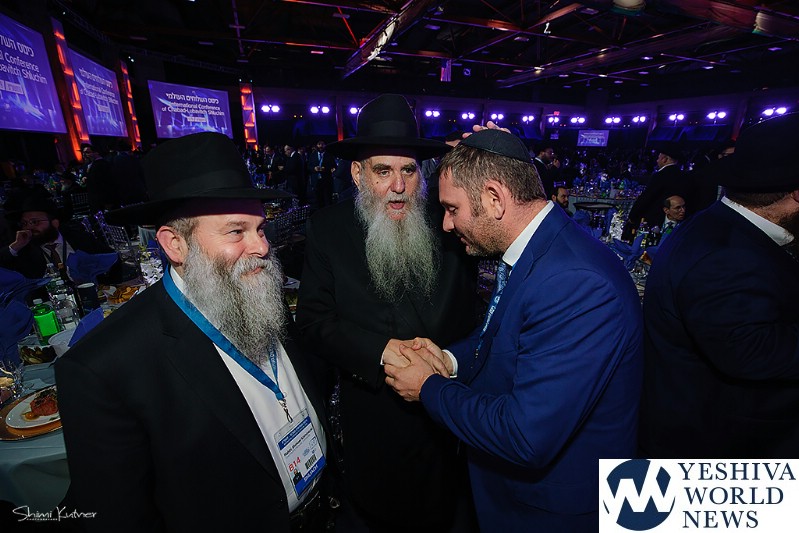
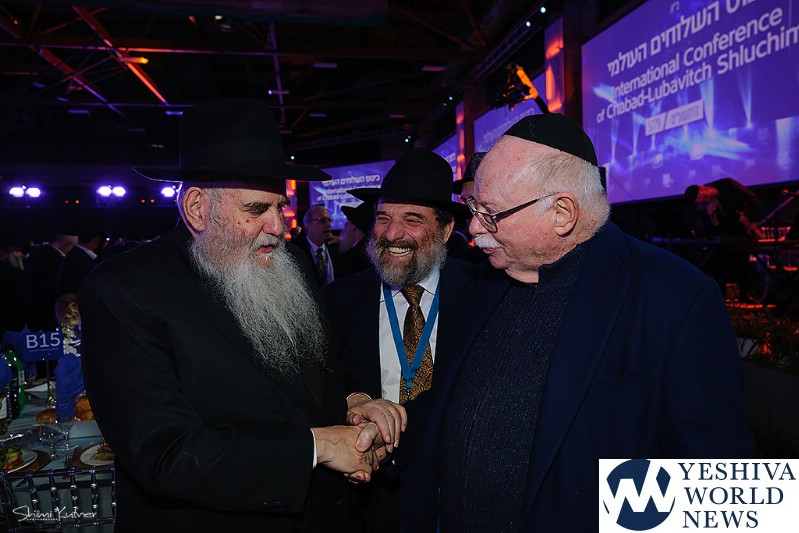
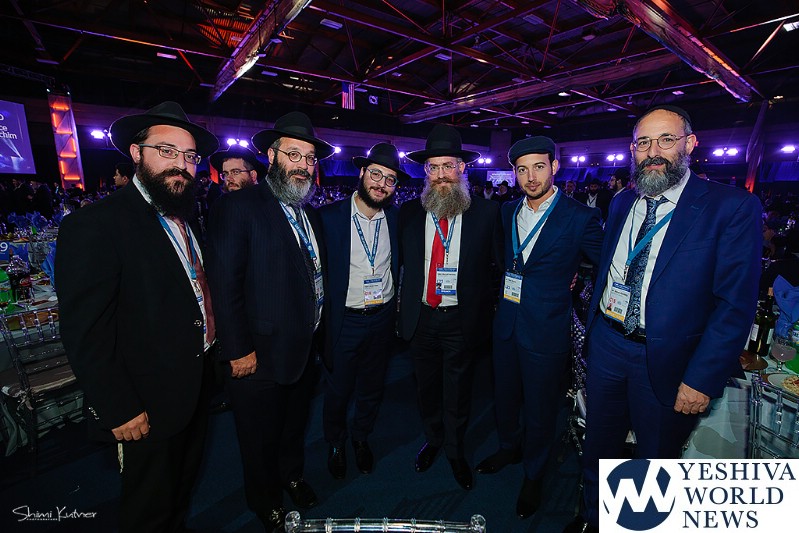
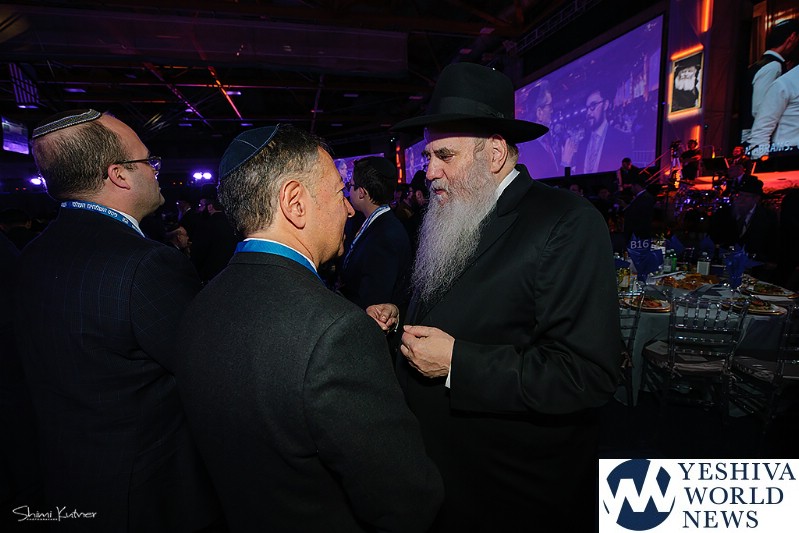
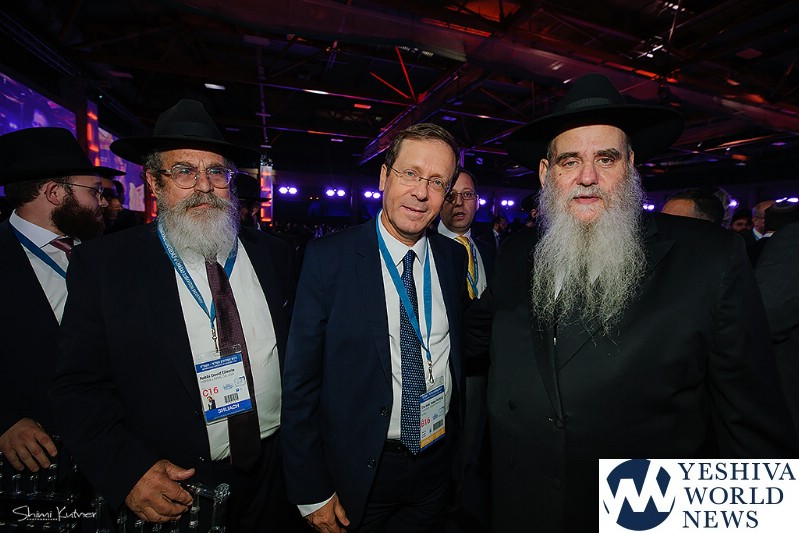
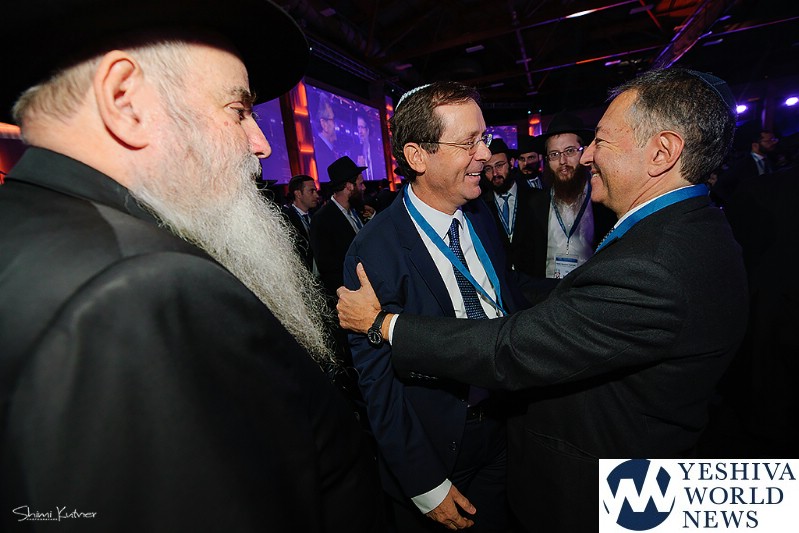
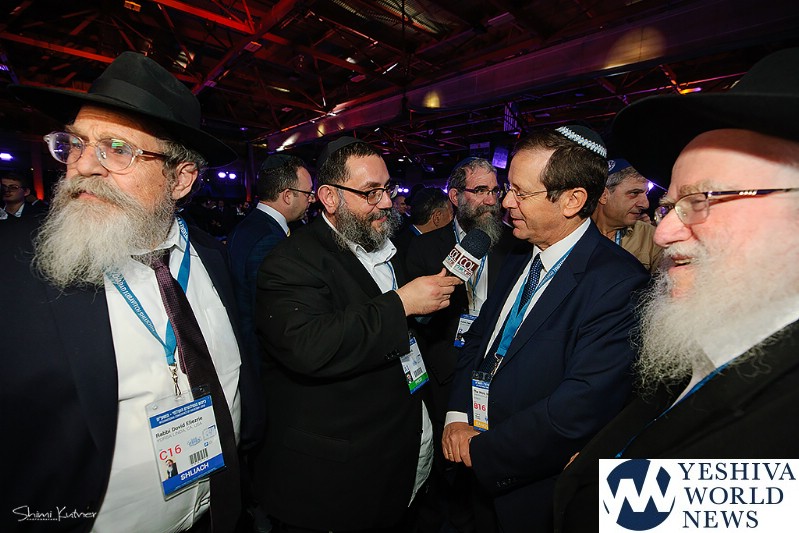
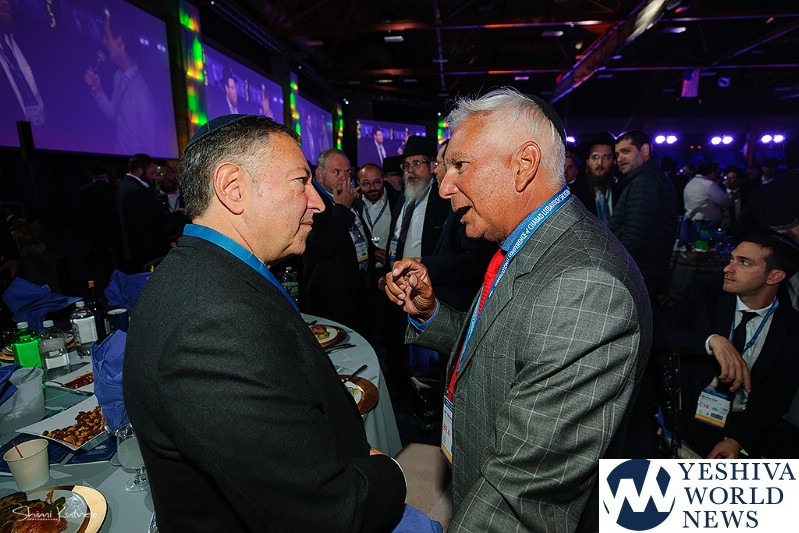
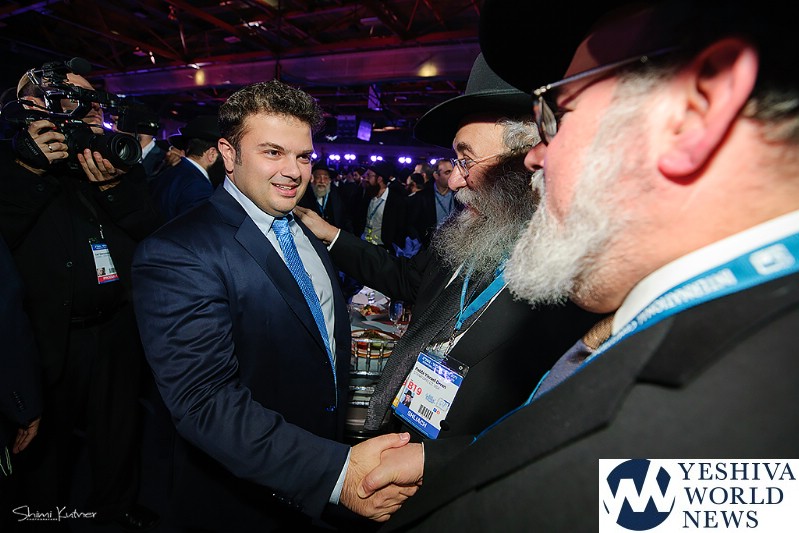
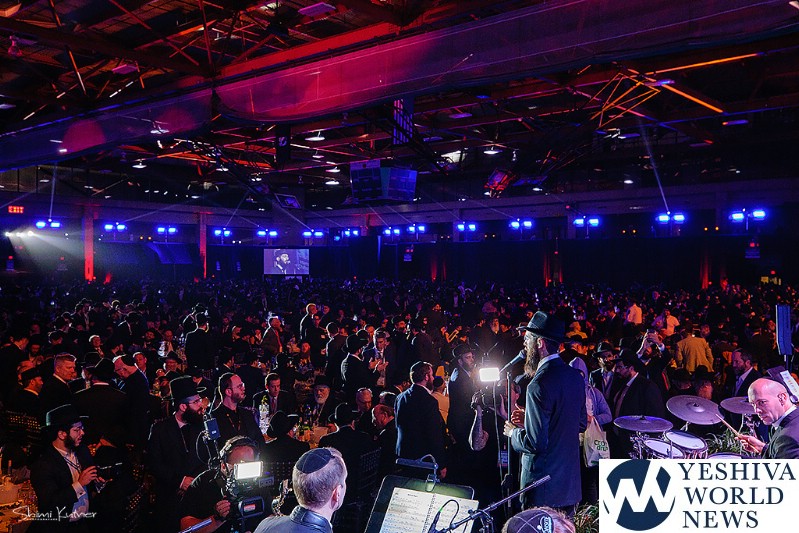

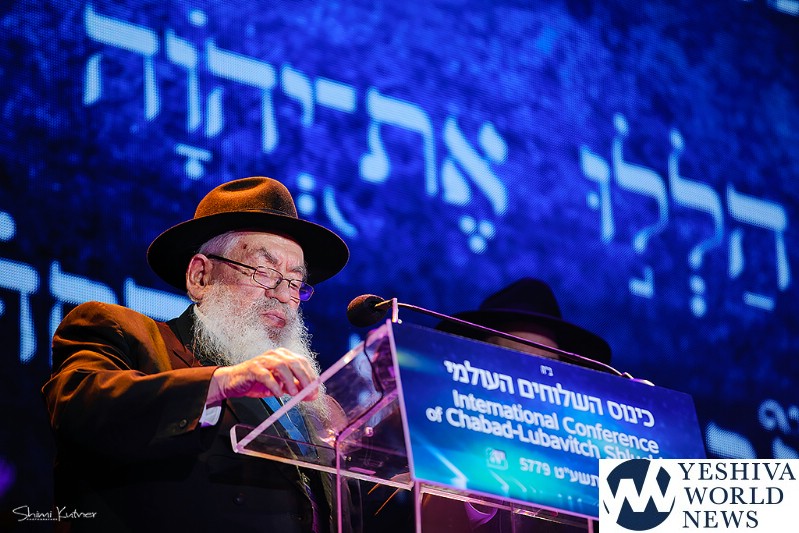
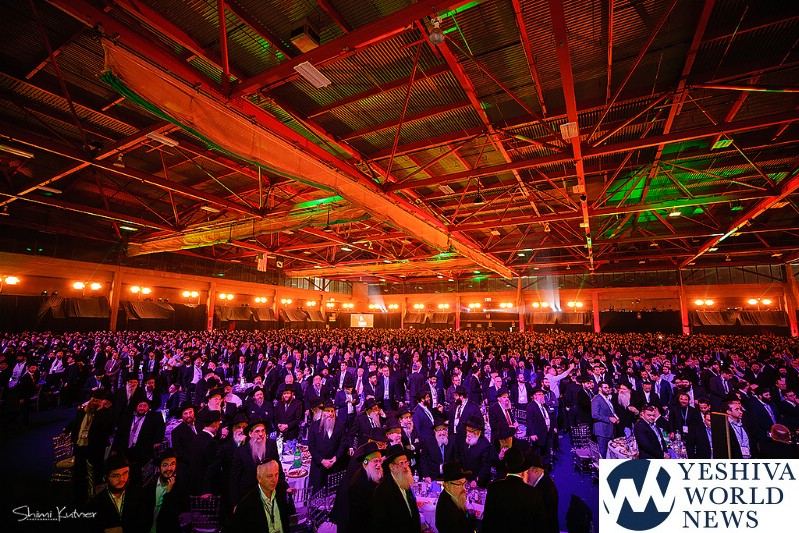
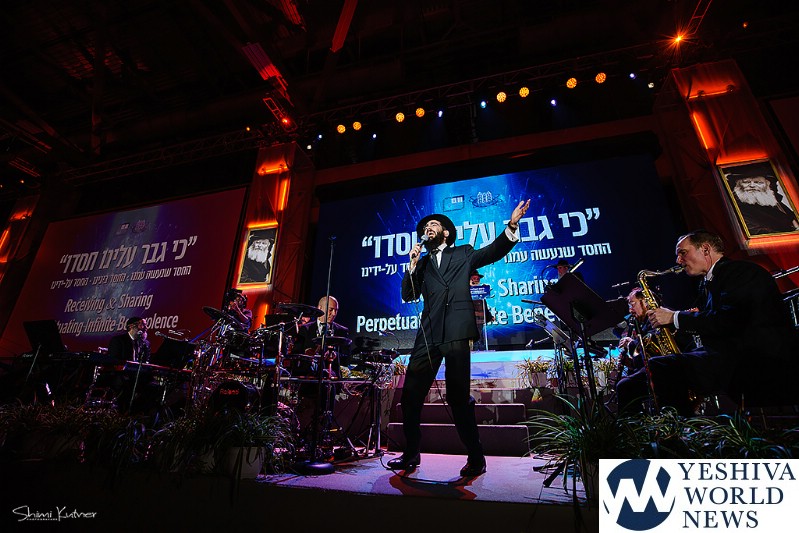
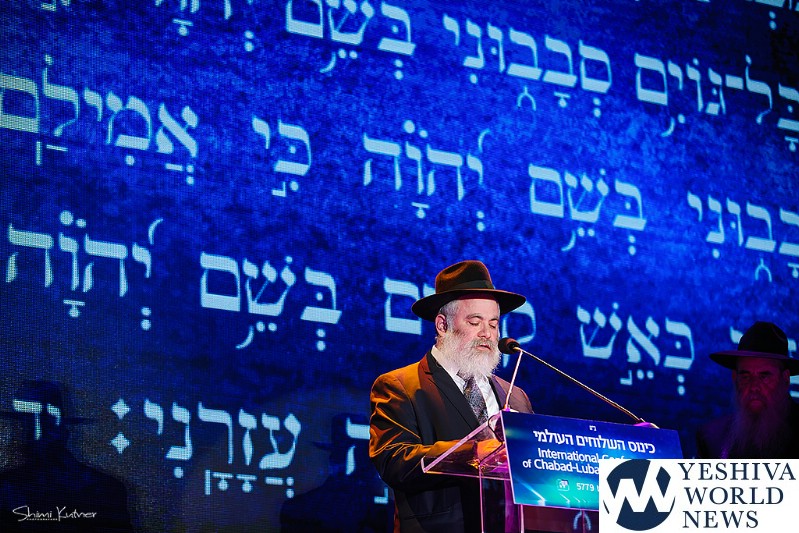
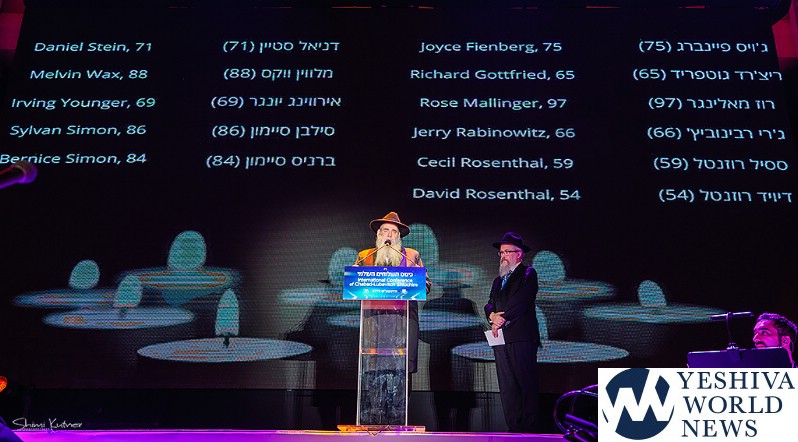
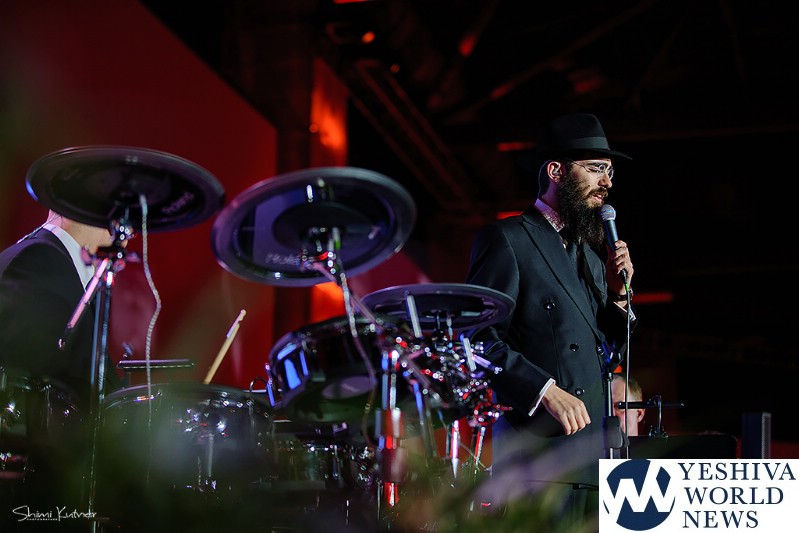
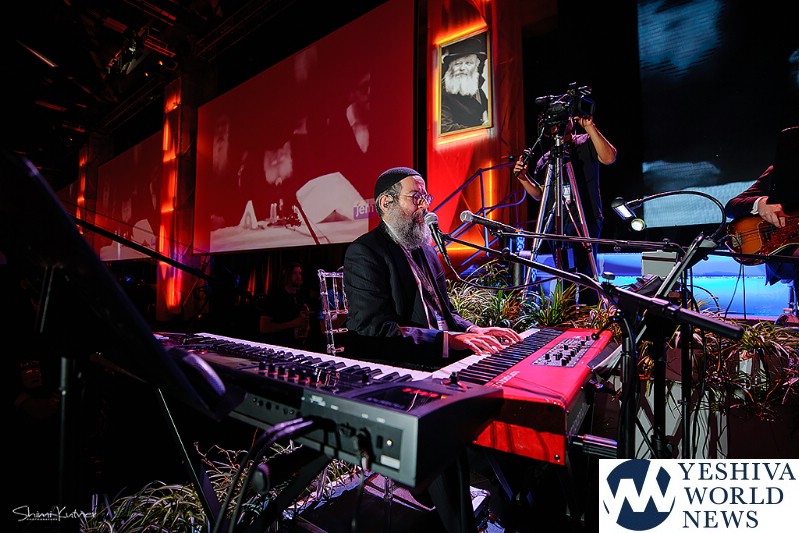
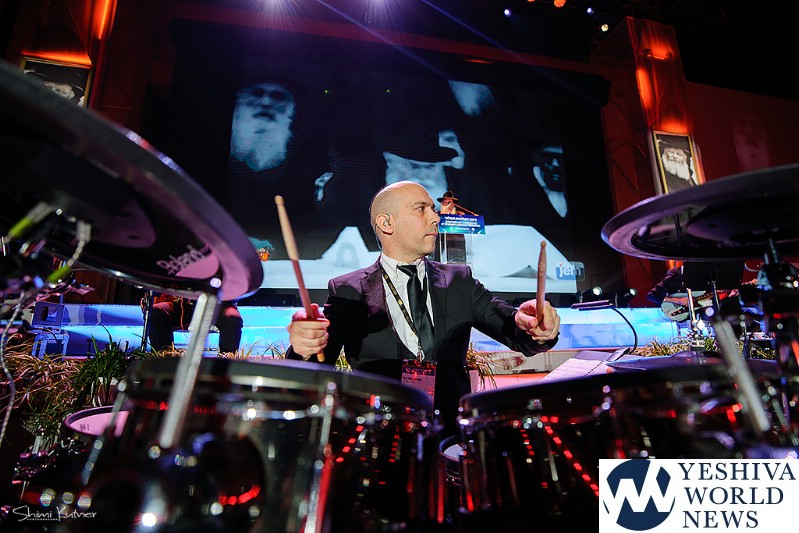
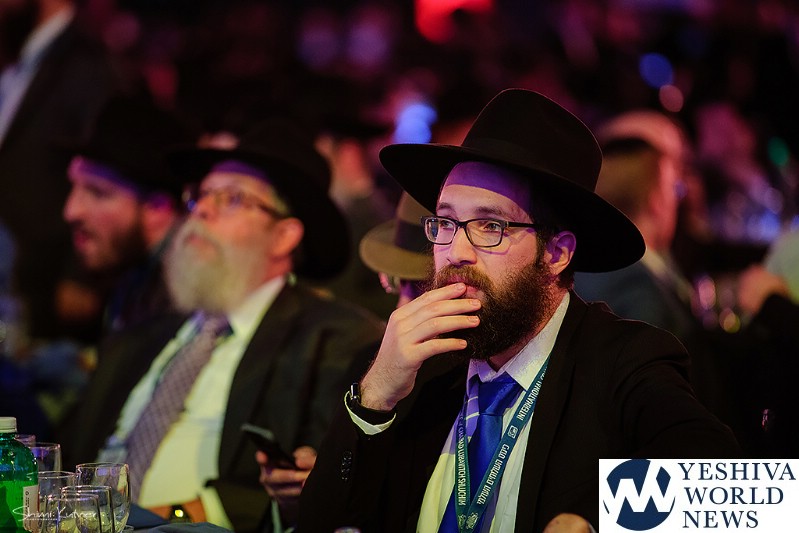
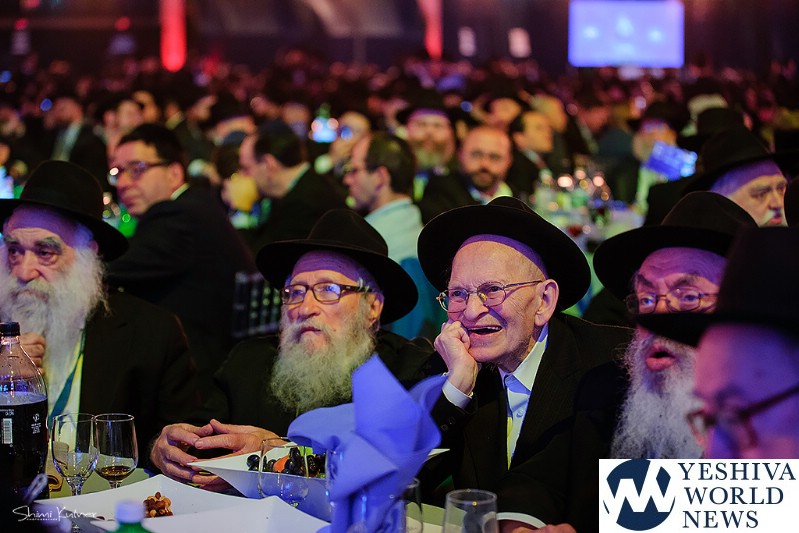
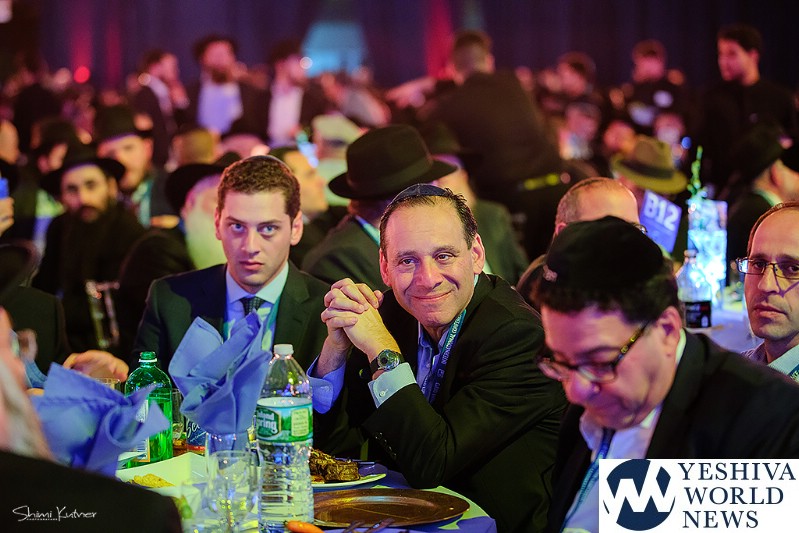
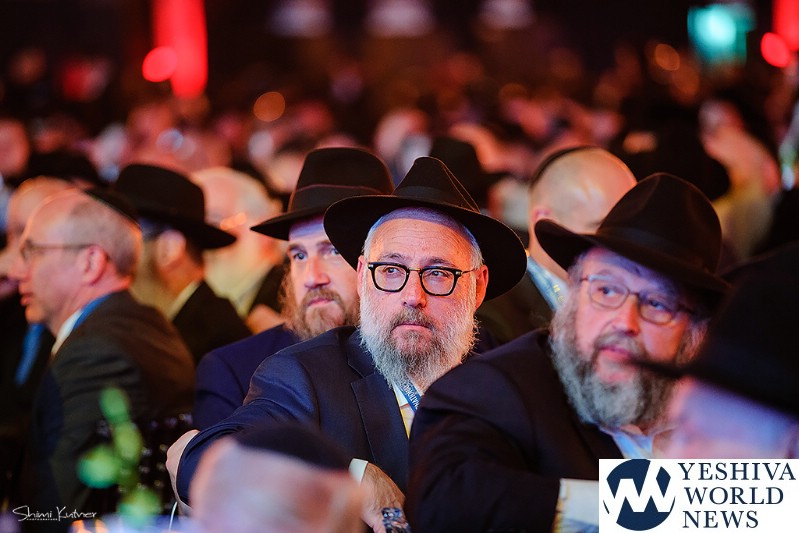
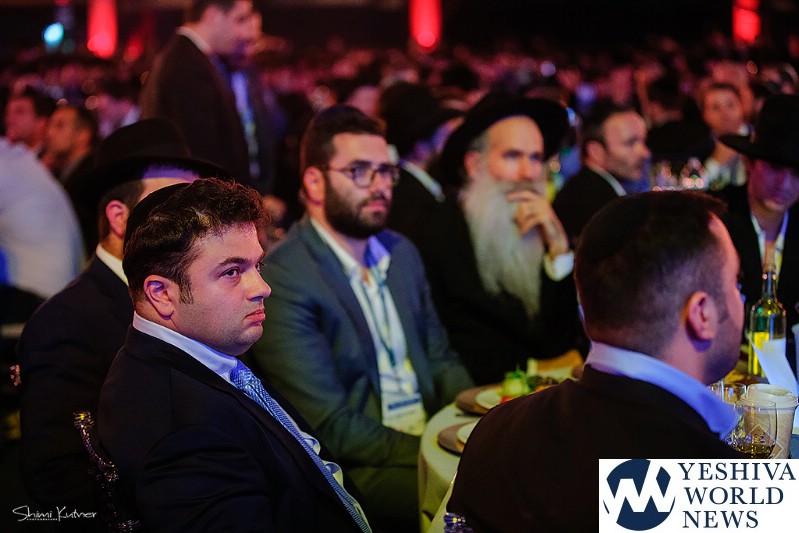
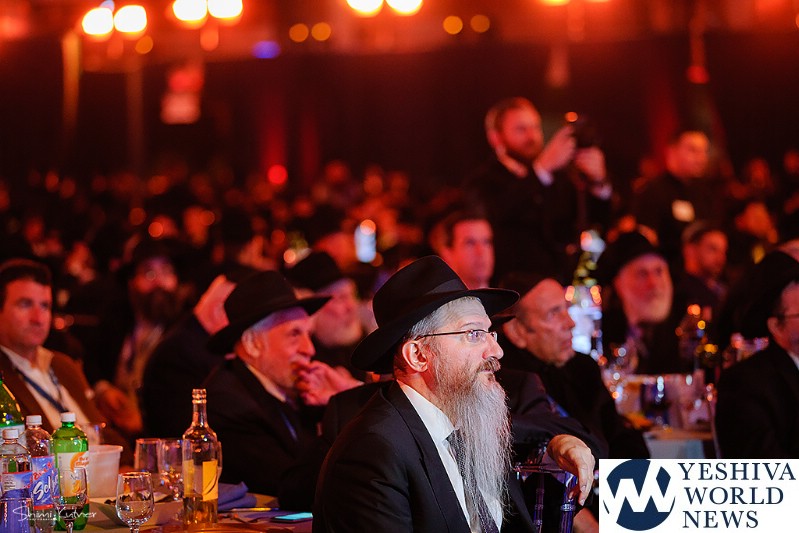
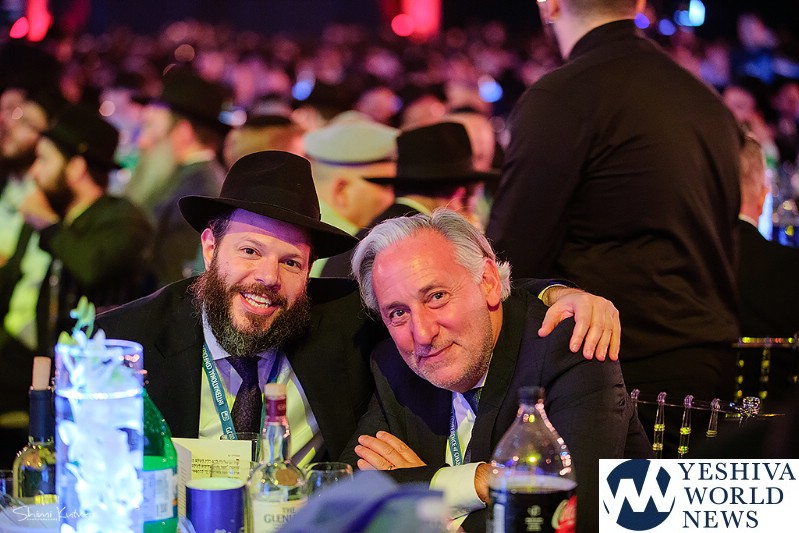
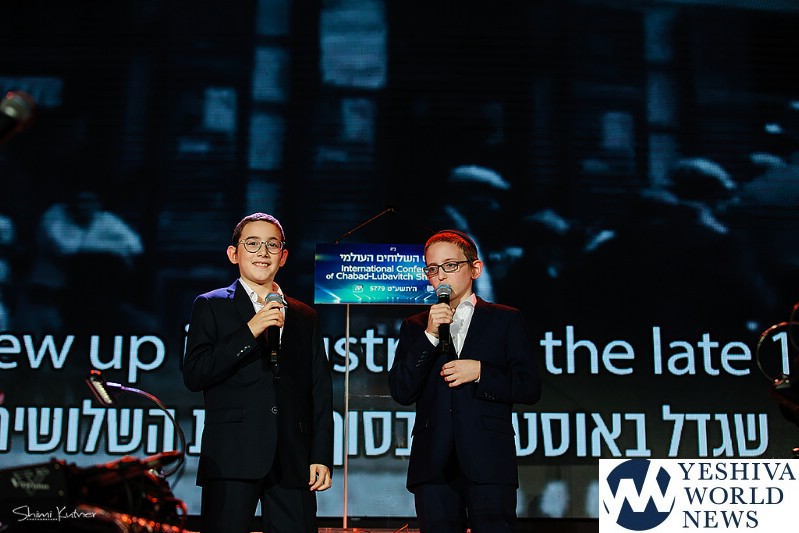

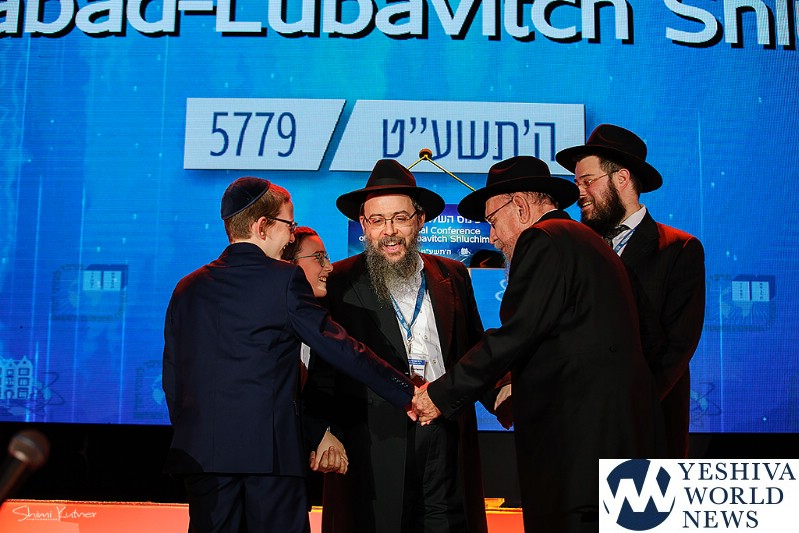
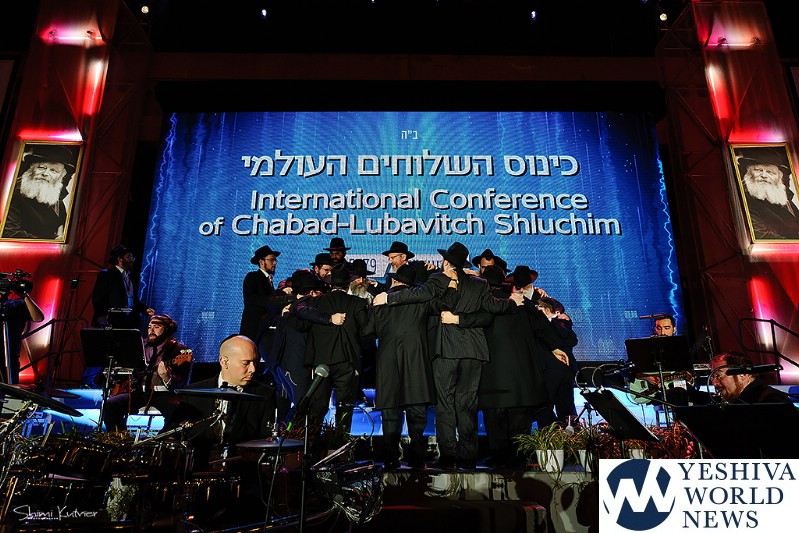
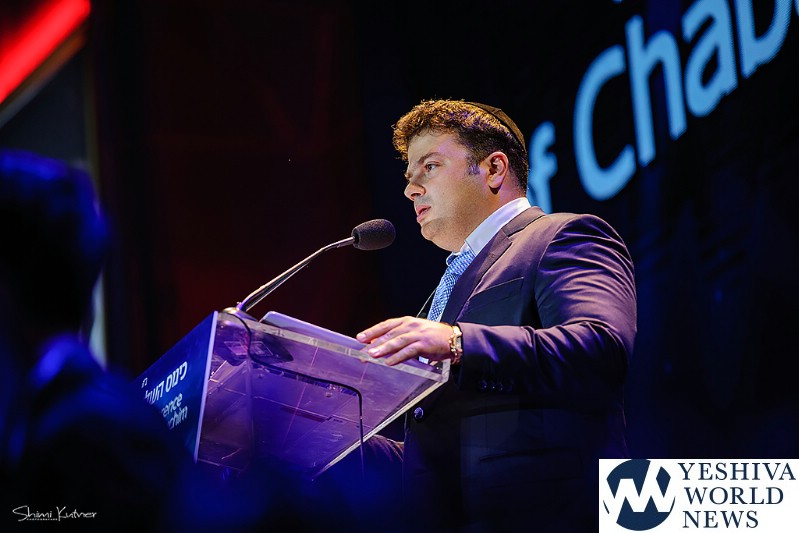

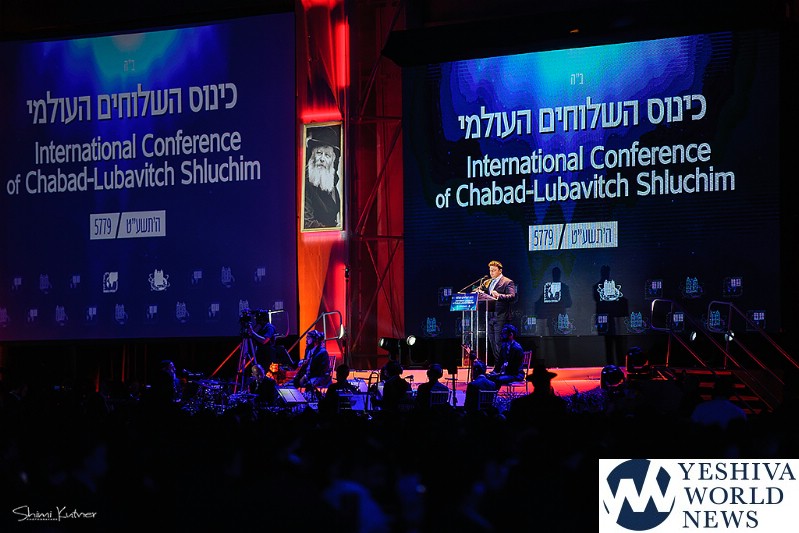
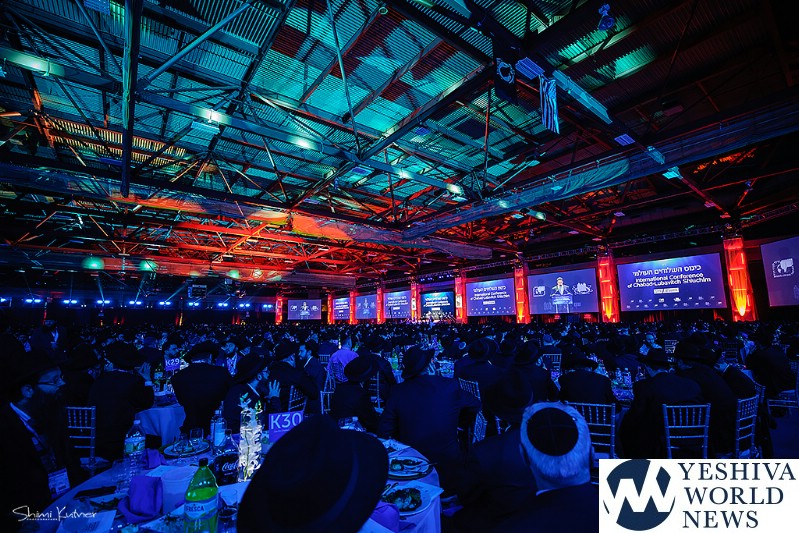

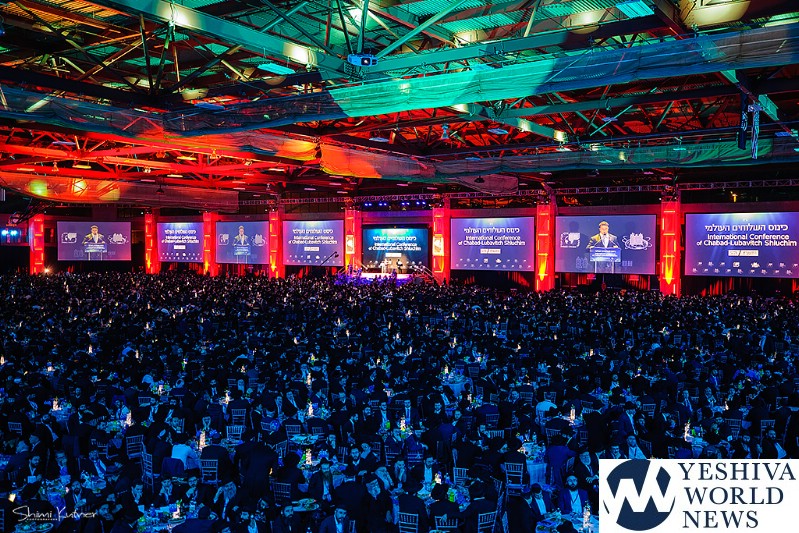
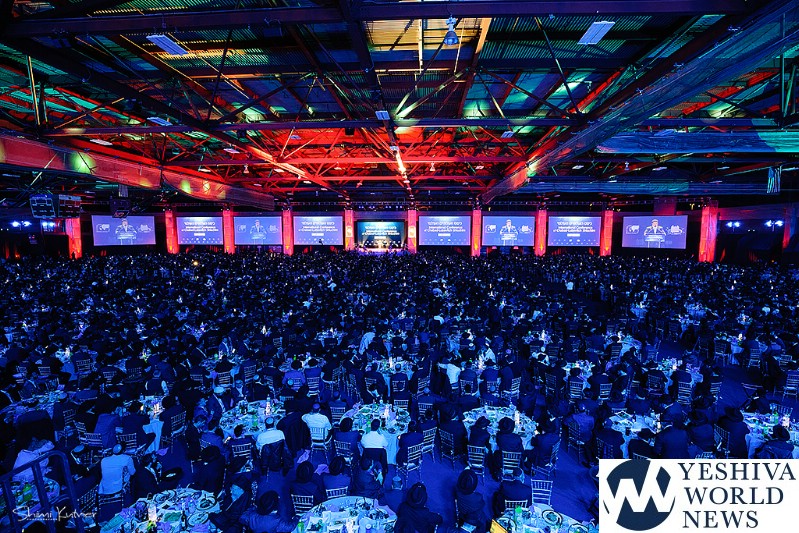
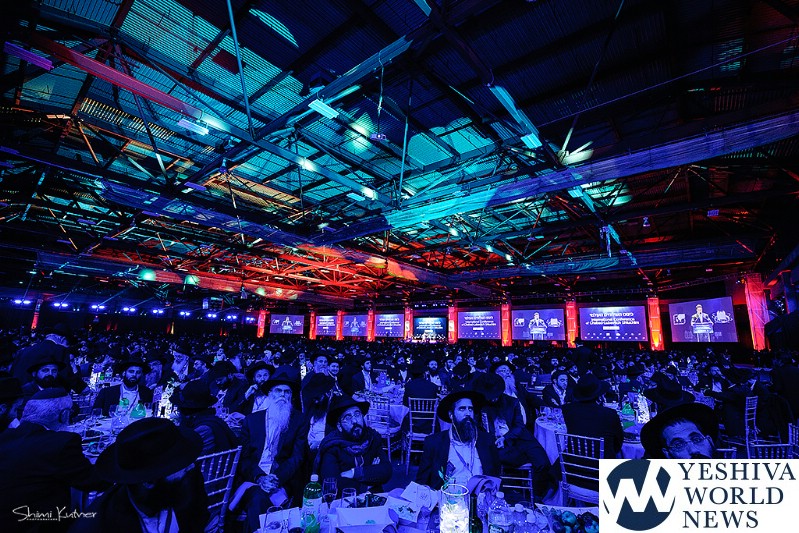

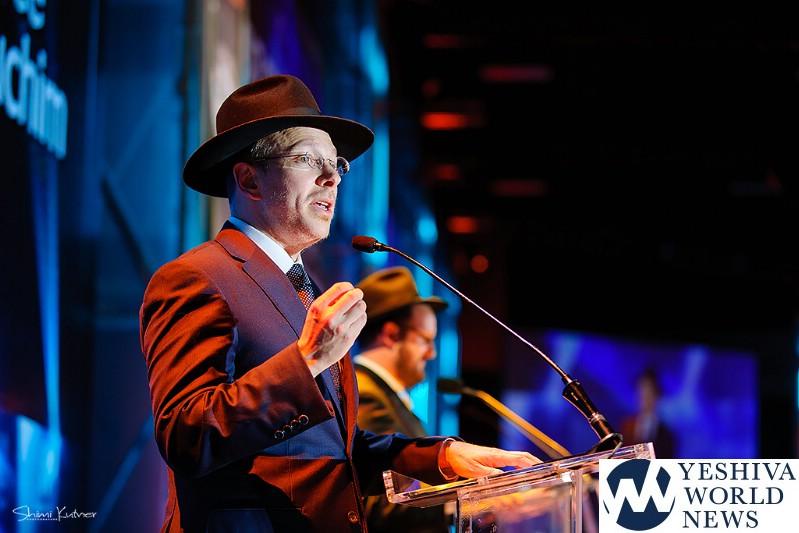
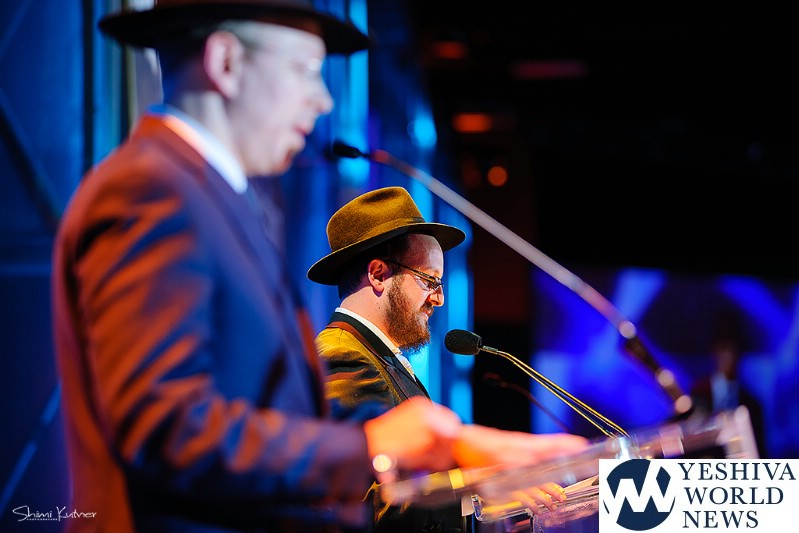
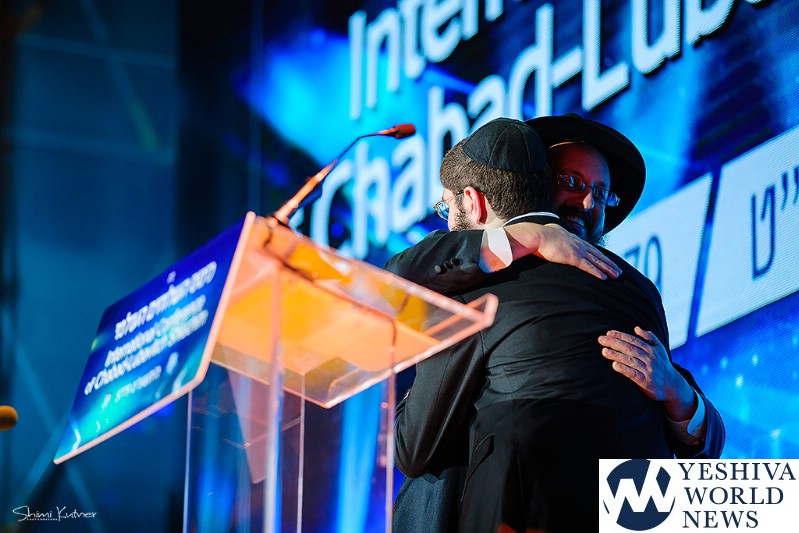
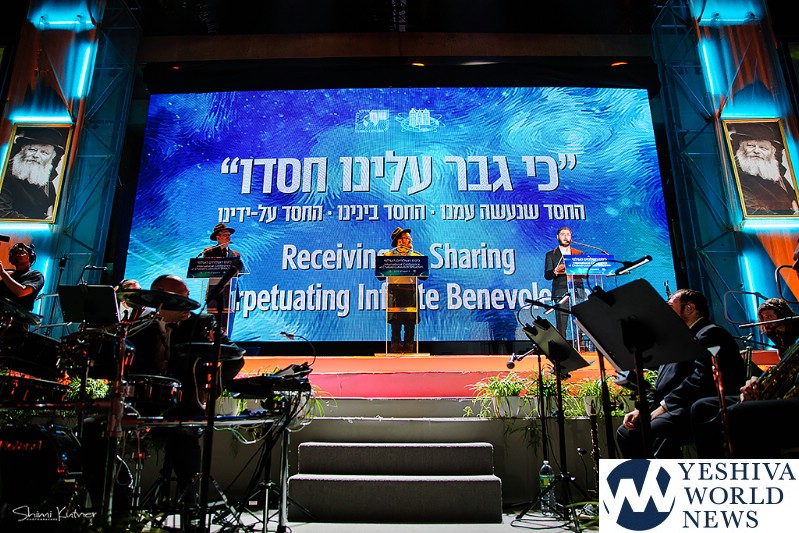
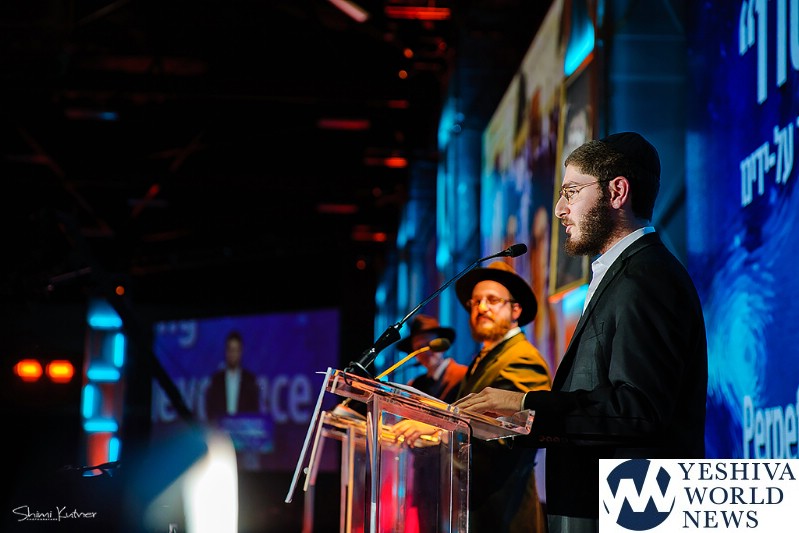
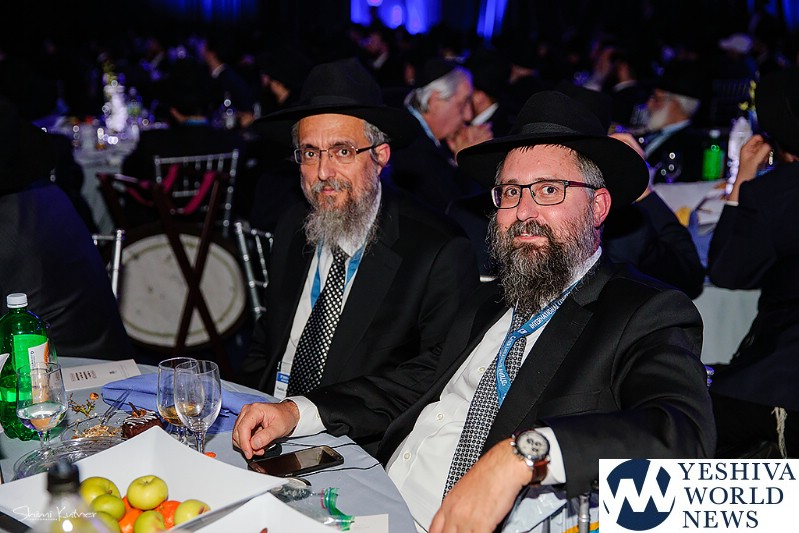
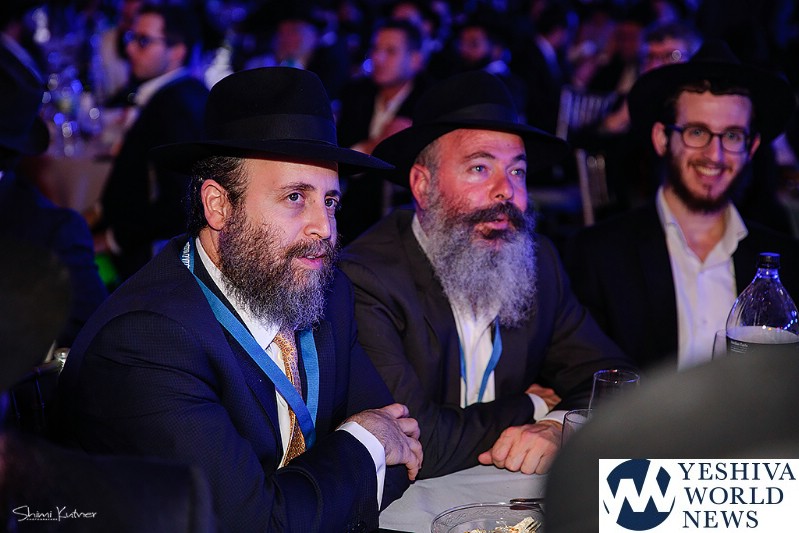
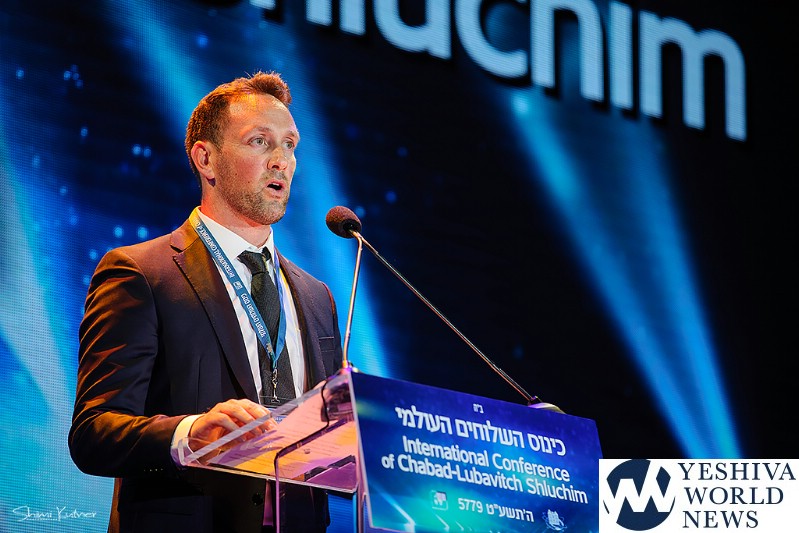
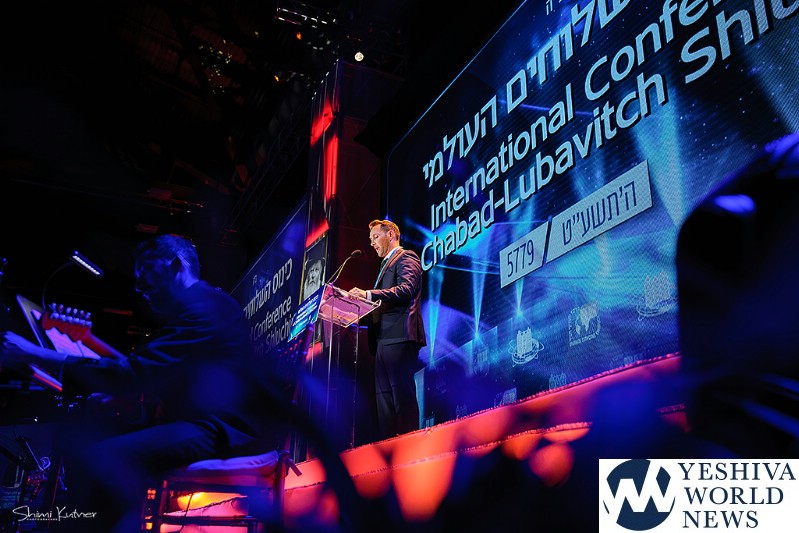
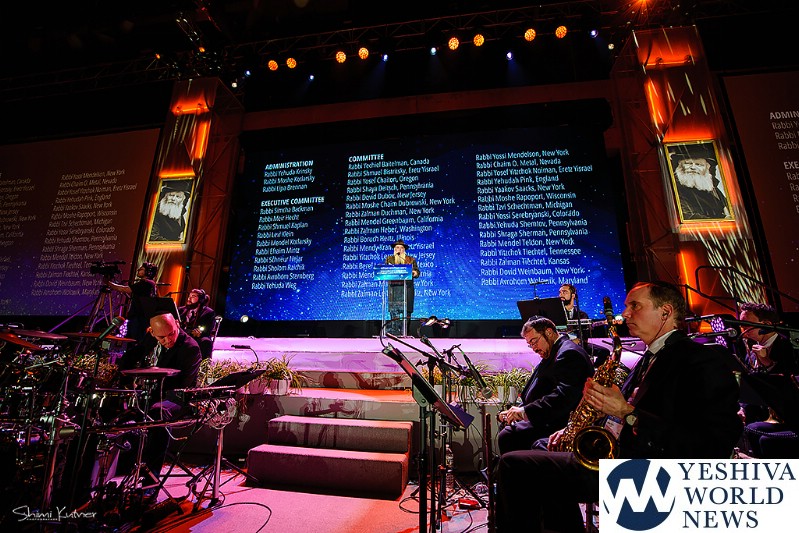

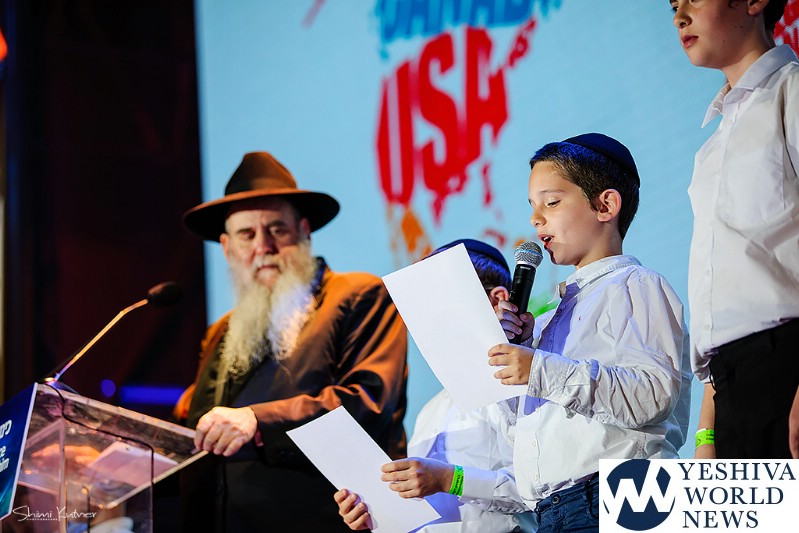
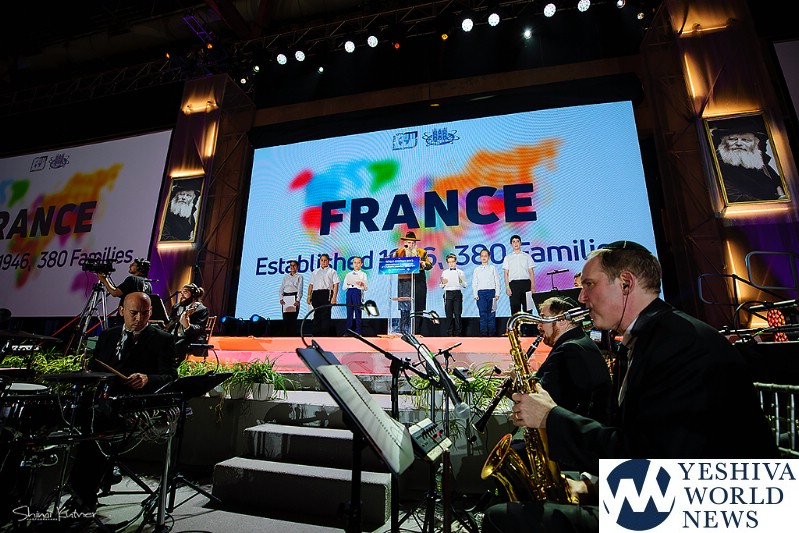
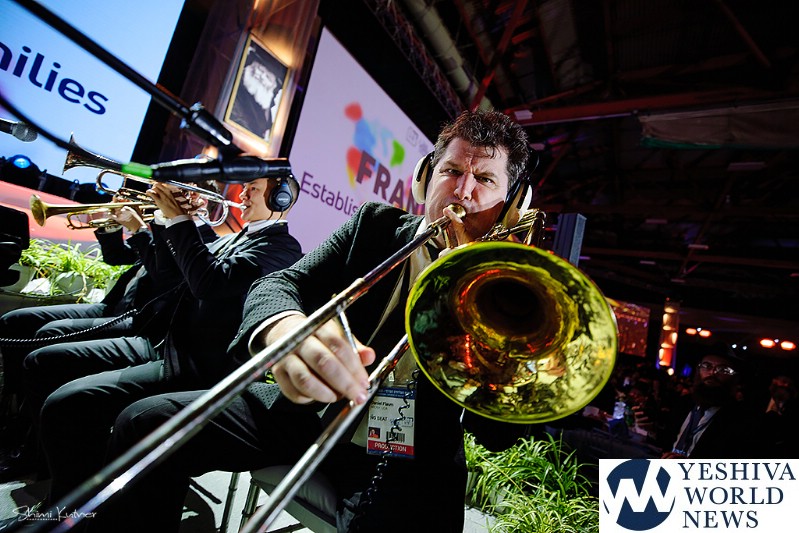
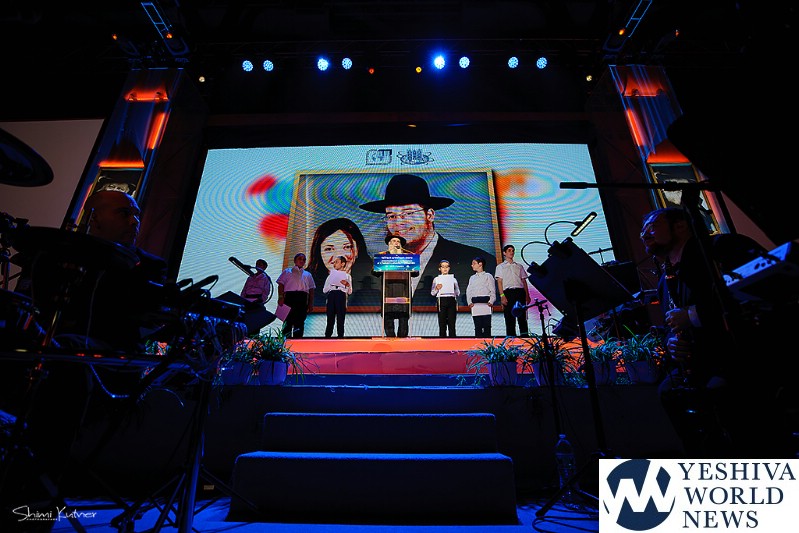
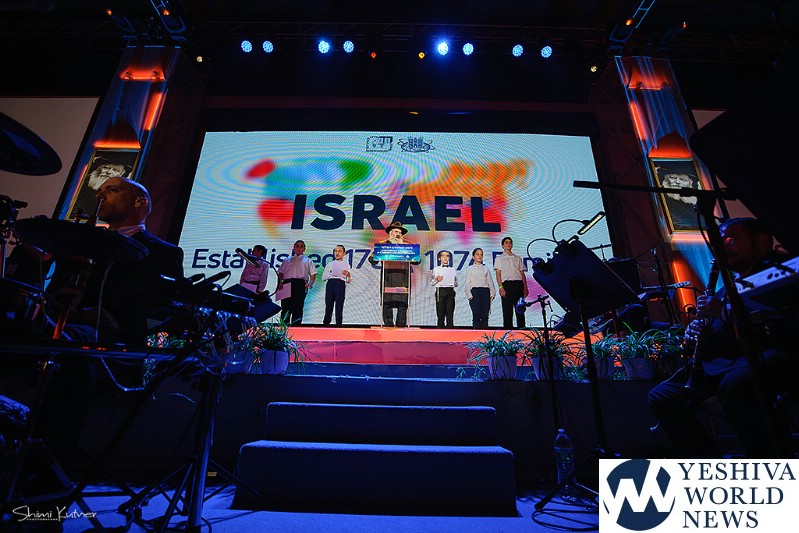
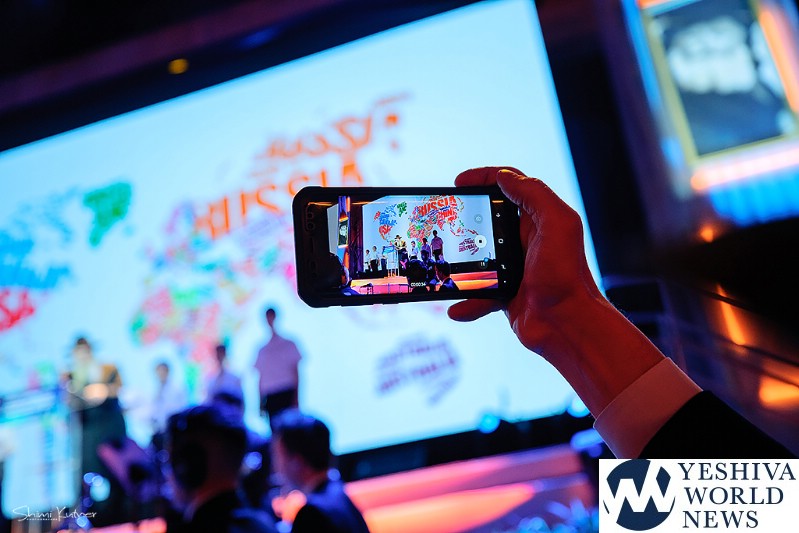
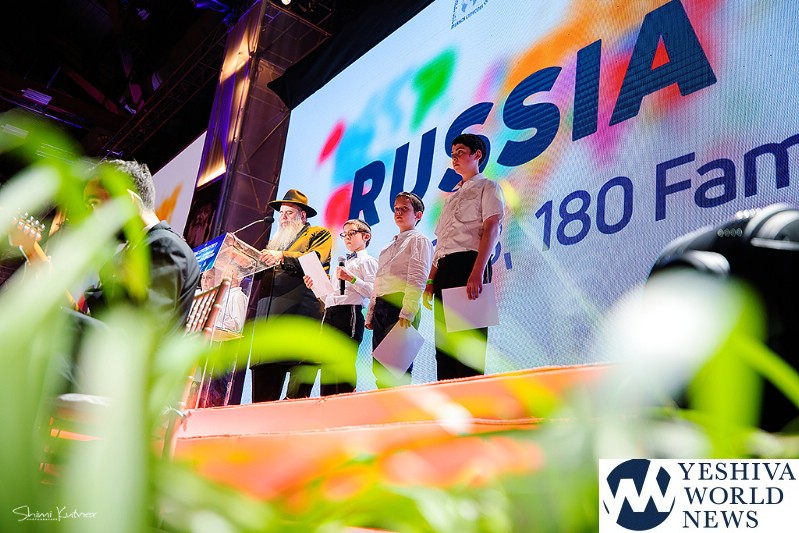
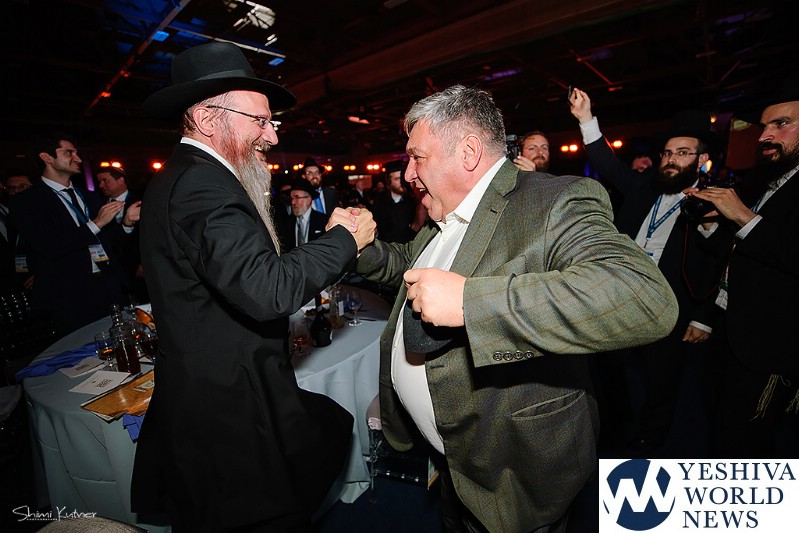
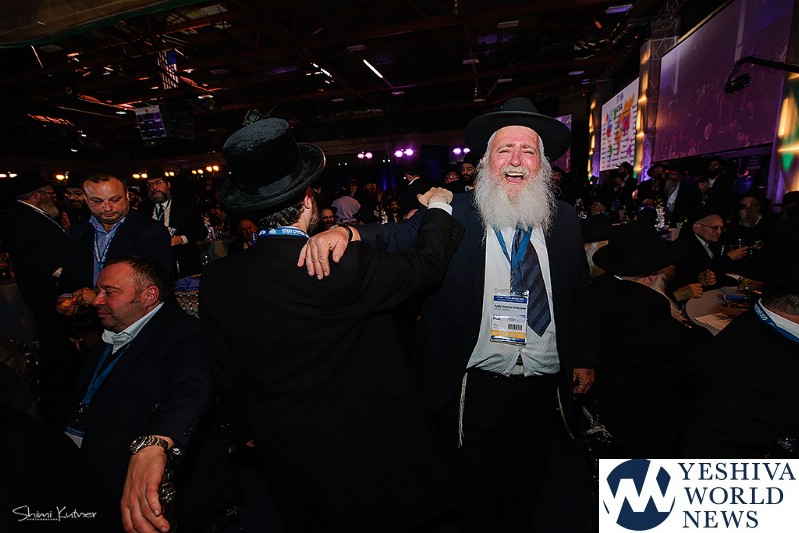
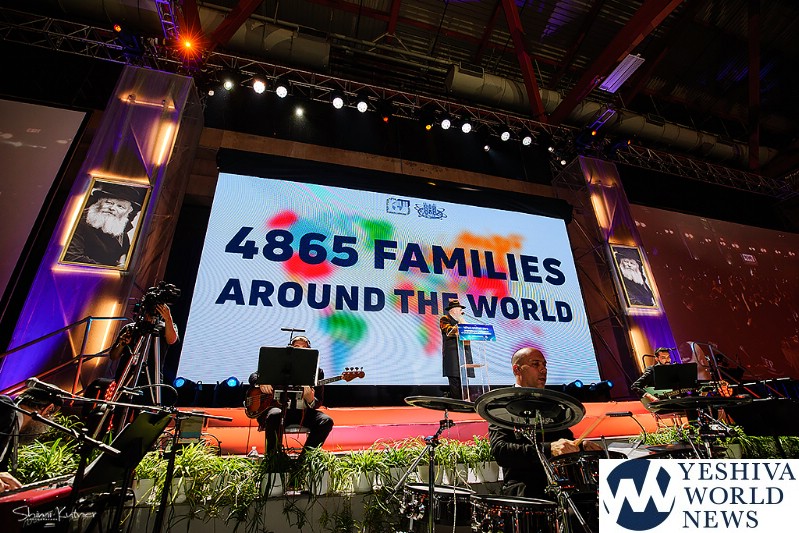
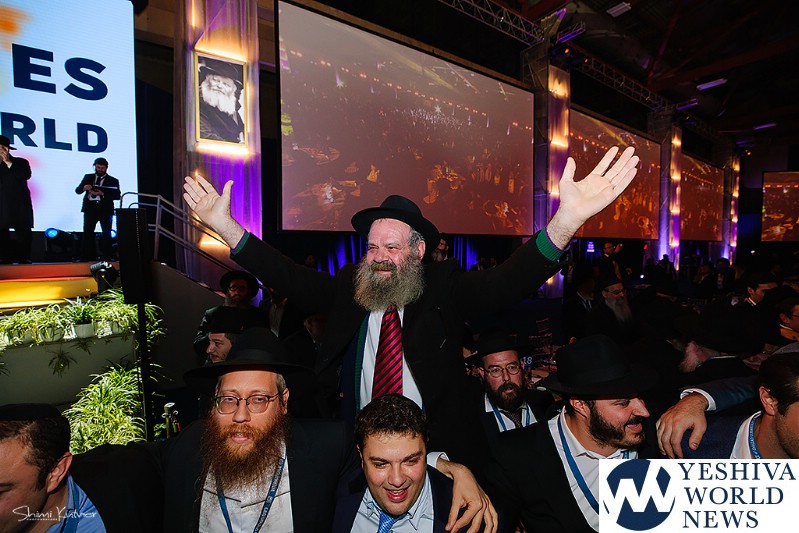
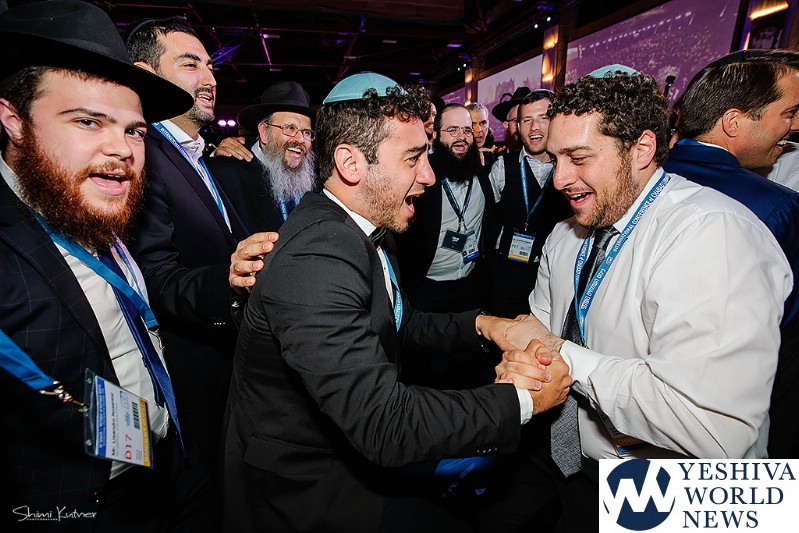
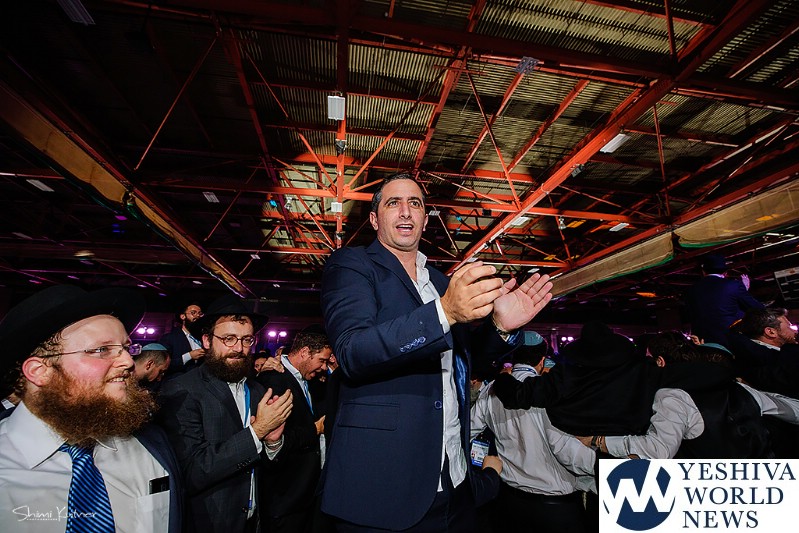
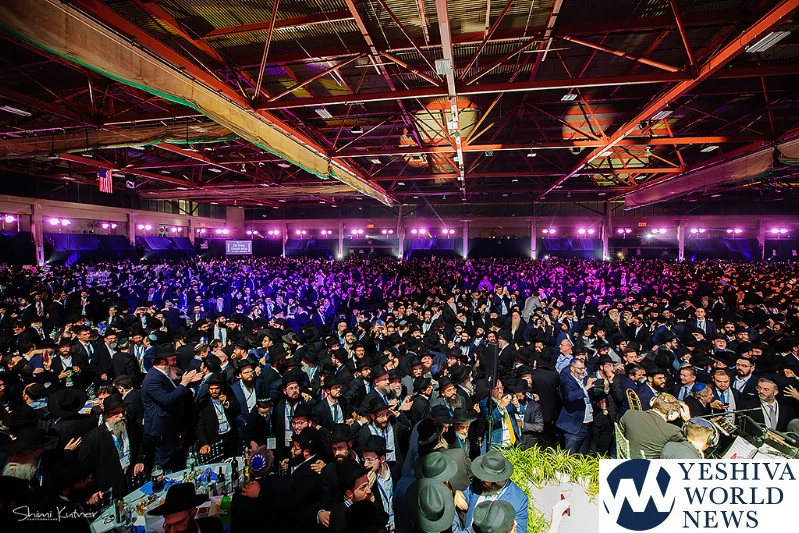
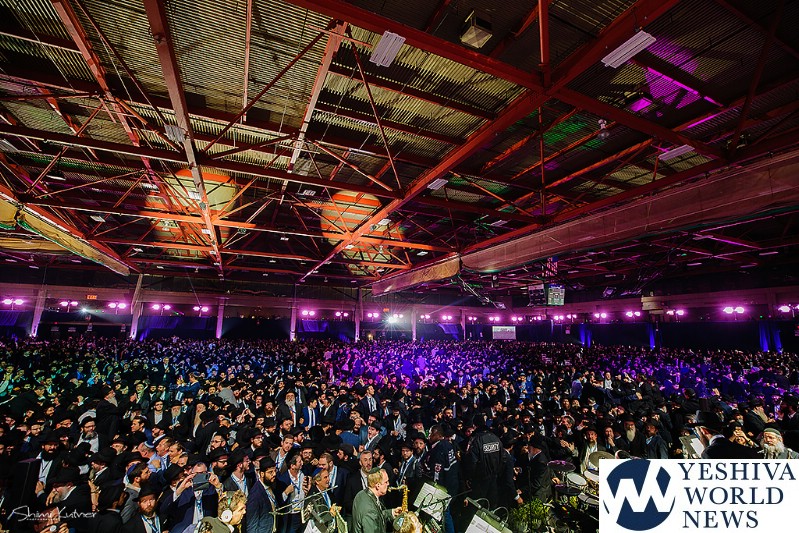
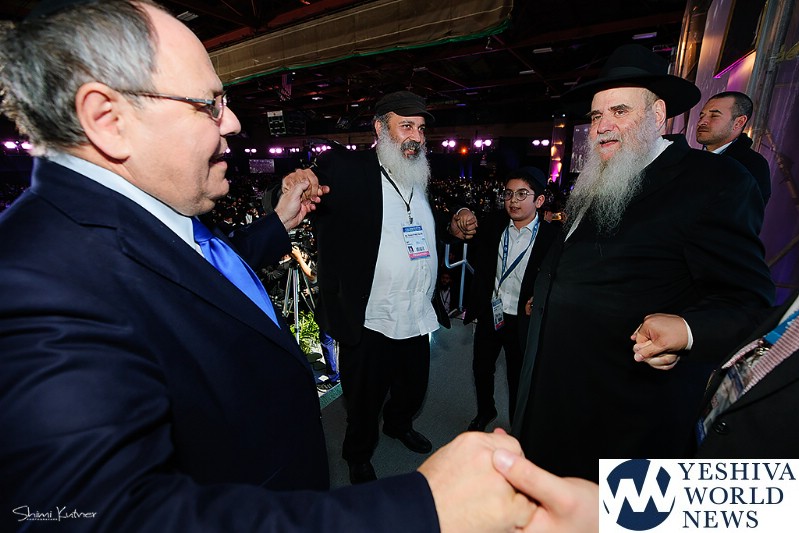

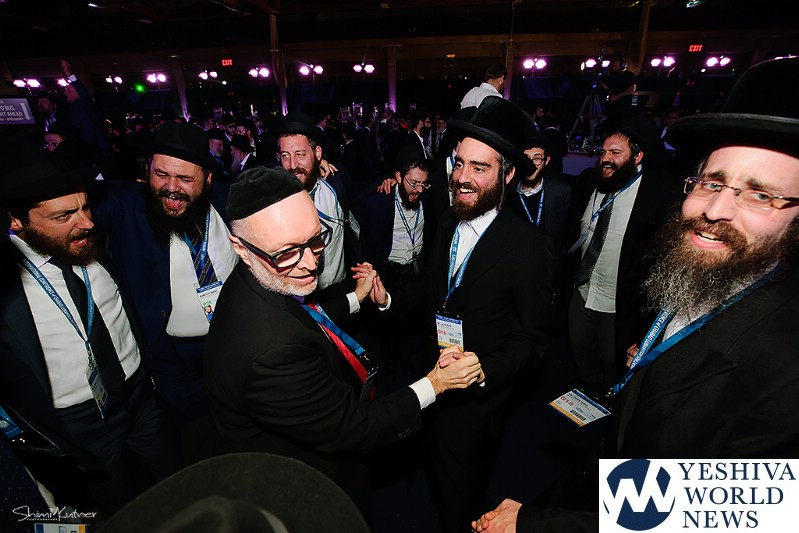 Kinus Hashluchim 5778
Kinus Hashluchim 5778











